










By Belle Beauchesne ’25
Seniors at Hebron were asked to answer three questions: Which staff or faculty member has made the biggest impact on you here at Hebron? What are you going to miss at Hebron? What is your favorite Hebron memory? The following responses are meant to serve as a way for the seniors to say farewell to Hebron and leave a permanent presence on campus despite traveling miles away next year for college or a different adventure.
Belle Beauchesne
“While many teachers have made a significant impact on my experience here at Hebron, Mr. Hanby has been a constant source of guidance and laughter for me here at Hebron. I am going to miss the lore stories from all the teachers because for some reason teachers here live the most fascinating lives before Hebron. A Hebron-adjacent memory that I will forever look back on is my last advisory dinner where Hiro, Kiera, Eliot, Mr. Brennan, and I all went to Norway Pizza XChange and reminisced on our time here at Hebron.” (Belle Beauchesne, 4 years at Hebron)


Lucy Diffin
“Even though I knew her prior to Hebron, Mrs. Dulac has made the biggest impact on my time here because of how much she has helped me grow. I am going to miss all the people I have been friends with and being able to see them every day. My favorite Hebron memory would have to be my Intermezzo trip Coastal Maine Adventures with my friends.” (Lucy Diffin, 7 years at Hebron)


Kiera Heath
“One teacher who made the biggest impact on me being here at Hebron was Mr. Smart. I am so grateful for everything he has done for me. He has been a great English teacher and has always been there for me when I needed someone to talk to or a good laugh. I’m going to miss the dorm life experience, living with my friends on the school’s campus, and playing prep school hockey. My favorite memories here have been the day in Boston for a history class trip and the advisory dinner at Norway Pizza XChange when Hiro, Belle, Eliot, Mr. Brennan, and I talked about our memories here at Hebron .” (Kiera Heath, 1 year at Hebron)

Kate Dilworth
“While many teachers and faculty here have made huge impacts on my life such as Ms. Waterman, Dr. Oakes, and Ms. McKee, the one faculty member that stands out to me is Mrs. Hanby. I came from a severely underfunded school system, and starting at Hebron I remember feeling lost and overwhelmed by the amount of responsibility that was put on my shoulders. Mrs. Hanby taught me that as a woman it is not embarrassing to be the smartest person in the room. She taught me to create my own opinions, what a good work ethic is, and what it is to be a genuinely good person. Whether it be the students or faculty, I will one hundred percent miss the people here in the community at Hebron. My favorite Hebron memory is in eighth grade Lucy Diffin, Emma Frumiento, and I had to create a movie for our Spanish class. Ms. Drown, a former English teacher for Hebron, allowed us to use her car for a scene… moral of the story, Lucy and Emma left me in the car, and I was locked in there for maybe ten minutes due to a faulty locking mechanism in the car.”
(Kate Dilworth, 7 years at Hebron)


Evan
Miller
“The faculty member who has impacted me the most is Ms. Collins. Being sprung into becoming my advisor two years ago, she has done many great things to help me through my time here, from taking me to college visits, giving advice when needed, or even offering a place to stay over part of spring break. Ms. Collins is wonderful, and I will be forever grateful for her. The thing I am going to miss most about Hebron next year is the community. The community is what makes Hebron special. I’m going to miss walking around and everyone knowing everyone’s name, showing how close we are as a school. My favorite Hebron memory is meeting Krum. Without Krum, the last two years would have looked much different for me, as I would not have had the best roommate ever. From that, I never would have had the pleasure of traveling to Bulgaria.” (Evan Miller, 4 years at Hebron)


Krum Tsvetkov
“Hebron has given me a lot, and I wouldn’t change any of it because my experience here has been one of a kind for many reasons with 99% of them being positive. This place has given me a lot of opportunities to develop myself and prove what I can do, valuable life skills, teamwork and most importantly, many friendships. There are many people who have made a huge impact on my life since coming to Hebron with some of them being Coach Morris, Coach Loomis, Ms. D, Ms. Waterman, Dr. Oakes, Ms. Stokes, Ms. Nadeau, Mr. Stock, Mr. Smart, Coach Sweeney, and many more; however, there is one person who has been my mother here. She always knew when I needed her, even when I never said a word. She has always been there for me in my highs and lows, and I will always believe that God sent her to me to protect me - Mrs. Dulac. It is very hard for me to choose only one memory with which I would want to remember Hebron, but one that will always stand out would be when I heard that I was going to come back here for my senior year because ASSIST had never allowed kids to do this, so it was something they did for the first time ever. Therefore, it was very special because that’s when I realized how much I love this place and how much I want to give to the community that has given me everything it can.” (Krum Tsvetkov, 2 years at Hebron)
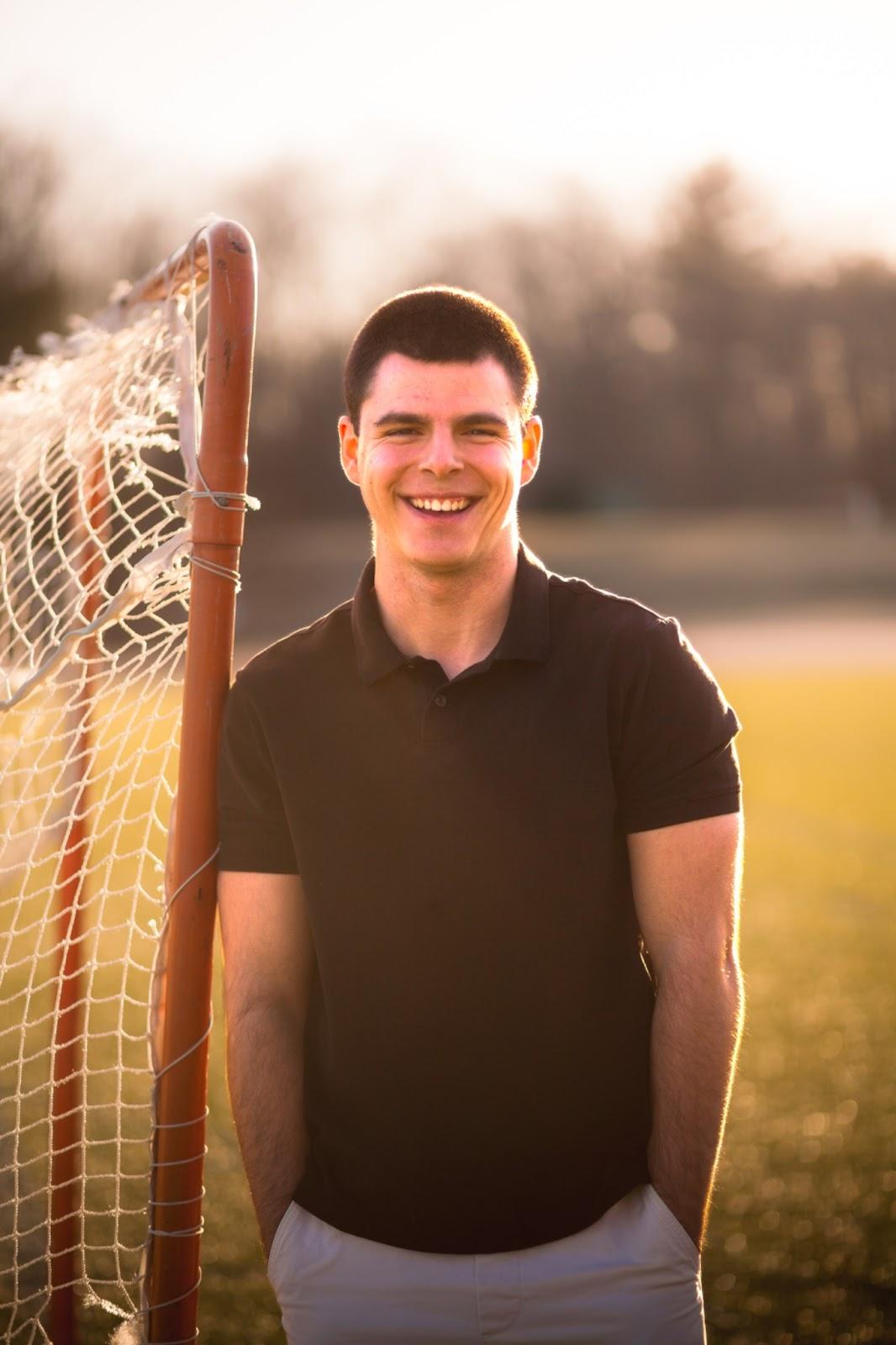
By Nazar Vialichka ’25
When my father was a college senior and did his “last word”, he messed up big time. From what he told me, it was pretty embarrassing, and I promised him to do a better job. Without going into details, I'll just say that the fact that I'm not freestyling it already makes it better than his.
Though I’ll admit, writing a Last Word was a real struggle, especially with only a week left. It was stressful, and I cycled through every stage of grief before putting pen to paper.
First it was denial. I swore the schedule had given me at least a few more months last time I checked. Maybe they messed up? Maybe the schedule was wrong? But lying to myself couldn't change the outcome, and I knew that.
Then I was furious, because no one cared to remind me about the deadline–which was definitely my fault, but I just like blaming others. After that I nearly gave up and almost considered going out and improvising, following my father's footsteps, so to say, or just skipping it entirely. But that's when bargaining came in.
I begged Dr. Oakes and Ms. Waterman for an extension. When that failed, I even tried to bribe other seniors to take my slot. They missed out on an easy $20–their loss.
And then, late enough, there was acceptance, and I began to write.
I grew up in Belarus, a country with many controversial aspects and an even more controversial reputation, yet it was my home, and I dearly loved it. There, I was raised, sent to kindergarten, school, and eventually graduated. Yep, I already have a high school diploma. In other words, my whole life was on that tiny piece of land, and living so long in one place, you really begin to hate even the slightest changes in life.
But soon enough, changes came knocking on my door–literally. One sunny day, I had officers knocking on my door and giving me mandatory army draft documents. That's when problems began.
"If you want to make God laugh, tell him about your plans"—this quote perfectly describes my situation at the time. And it wasn't just a laugh—I was performing a whole stand-up show in front of Him.
You see, I was close to turning eighteen, which meant I would have to go to the army and serve like all the other teenagers of my age did. Warfare isn't really my thing, nor was I a big patriot, so consequently, I had to leave my country.

From that point, everything felt like one big lucid dream: First, there was a search for schools, then applications, then tons of interviews, and BAM! Suddenly, I had to pick one. I chose Hebron because it had the best logo—that was it, no research no nothing. A month later, I found myself in an unknown place—no goals, no plans, no one I knew, so I just went with the flow. These three years at Hebron went by incredibly fast, yet, in the process, they seemed insufferably long.
There were, however, lots of good memories: friends I made, teachers who changed my perspective on studying and made me actually enjoy school, all sorts of sports and hobbies I picked up—all these will stay with me after I graduate, even if only as memories in my forgetful head. Looking back at all that, It feels like I'm starting to appreciate it only now.
My parents always told me I need to live in the moment, but I simply can't do that without knowing what comes next. Even now, I'm still clueless of what I'm going to do after I graduate; to be honest I don't even know where I'm going to end up this summer, not talking about long term plans. But such is life —unpredictable and chaotic. I wish I could say that I learned to enjoy it but I really didn't, and I doubt that I ever will.
Apparently, barely anything goes as planned, but I guess if it was otherwise, life would really be boring. I mean, just a few years ago I couldn't even imagine that I would end up graduating for the second time in the USA, in a state that I never even heard of before arriving here! So I guess the chaotic nature of life has its own charm after all.
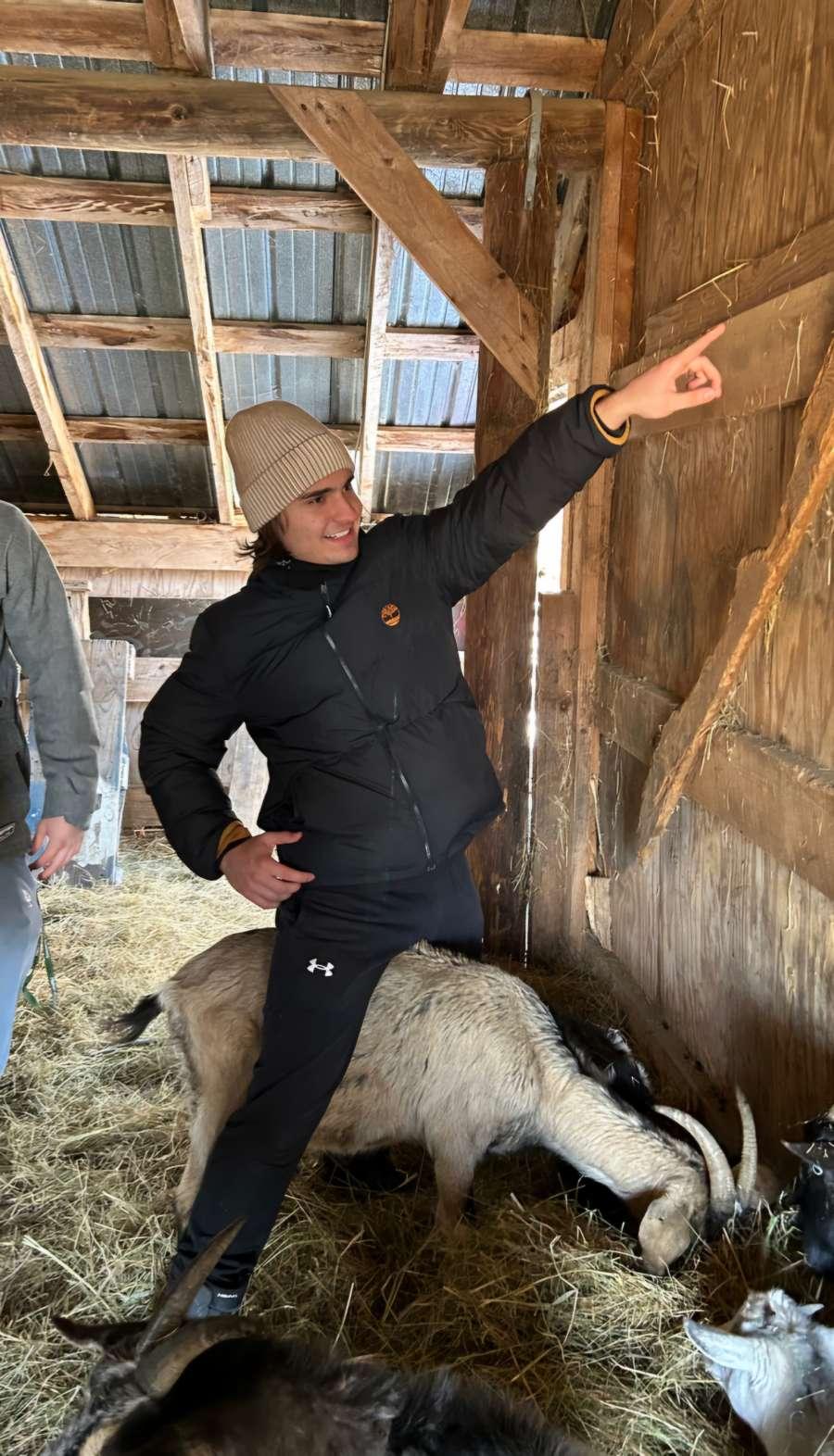
And that's about it for now. I just want to thank all my friends that were with me, no matter if we only met this year or if you were with me all along. Also, a huge thanks to my friends back home for always being in touch and reminding me who betrayed the Fatherland, while at the same time being just as lost as I am, trying to figure out our next steps together.

And, of course, my parents. I know, you have great expectations of me, and I promise you, I'll fulfill them; can’t say when though, but that's not important. Thank you for giving me this opportunity and I assure you it will not go to waste.
Now, most people end their last words with some wise advice, but I don't consider myself overly enlightened. All I can say is that it is fine to be lost, to not know where to go or what to do. It is all right to ponder over it, and sometimes, all it takes is to just throw the dice, spin a wheel, or flip a coin and let your fate do the rest. The worst thing you can do is stay in one place and wait for changes. They will come, for sure, but when they do, it may already be too late.

By Amina Kharuti ’25
Many of us have warm memories of leaving home to begin a new adventure: Maybe when you were a young boy or girl, and you went off to summer camp in Maine for the first time, or maybe when your parents proudly dropped you off at Hebron Academy and you began your life as a boarding student.
My memories of leaving Afghanistan in August 2021 to come to the United States are a little different. We had to flee the Taliban with one day’s notice, struggle through screaming crowds and loud gunfire to reach Kabul Airport, spend four days huddled inside the airport praying for an evacuation flight, and inside a packed military-transport plane during the long flight to Qatar and safety.
These memories still make me sad—and a little afraid. But then I have other memories—beautiful memories— like the day my host family here, at Hebron, took me to their home for the first time. “This house is for you,” they said, “this is your home. You should always feel comfortable here.” Then they showed me my room, and I shut the door and cried. I cried about everything I had left behind, but also about everything I had gained: A wonderful new school, a sense of safety and security, and a loving host family whose kindness I can never repay.
I am so grateful for all that Hebron has provided. So many teachers and advisors have worked tirelessly for my success. I want to give special thanks to Mr. Hanby, Mrs. Dunbridge, and Mr. Weller, who were always there for me. I will carry the lessons I have learned at Hebron for the rest of my life.
But to be honest, nothing I have learned here, or what I will learn in college, will be more important than the lessons I learned from my father. He was, and will always be, my greatest teacher.
My father loved to study, but as a young man he had to leave school and go to work to support his family. I am the oldest, and my father wanted all of his children to get great educations—especially his daughters. I think that’s why he was so determined for me to go to school, even though I was born in a small village where most families thought it was a scandal for girls to go to school.
In fact, when I started school as a young child, many of the families in our village changed their attitudes towards us. People stopped visiting our house. My parents’ friends turned their backs on them. That’s when my parents decided we would move to a city, where it was more common for girls to go to school. But even there, people objected. That’s when my father decided I should go to SOLA, an all-girls boarding school in Kabul.

His life-changing decision for me to go to SOLA is what eventually led me to Hebron and the life I have today. When he dropped me off at SOLA for the first time, he said to me, “Be strong and passionate in your life. Don’t listen when people say you can’t do something because you are a girl. Become the person everyone is fighting to be.”
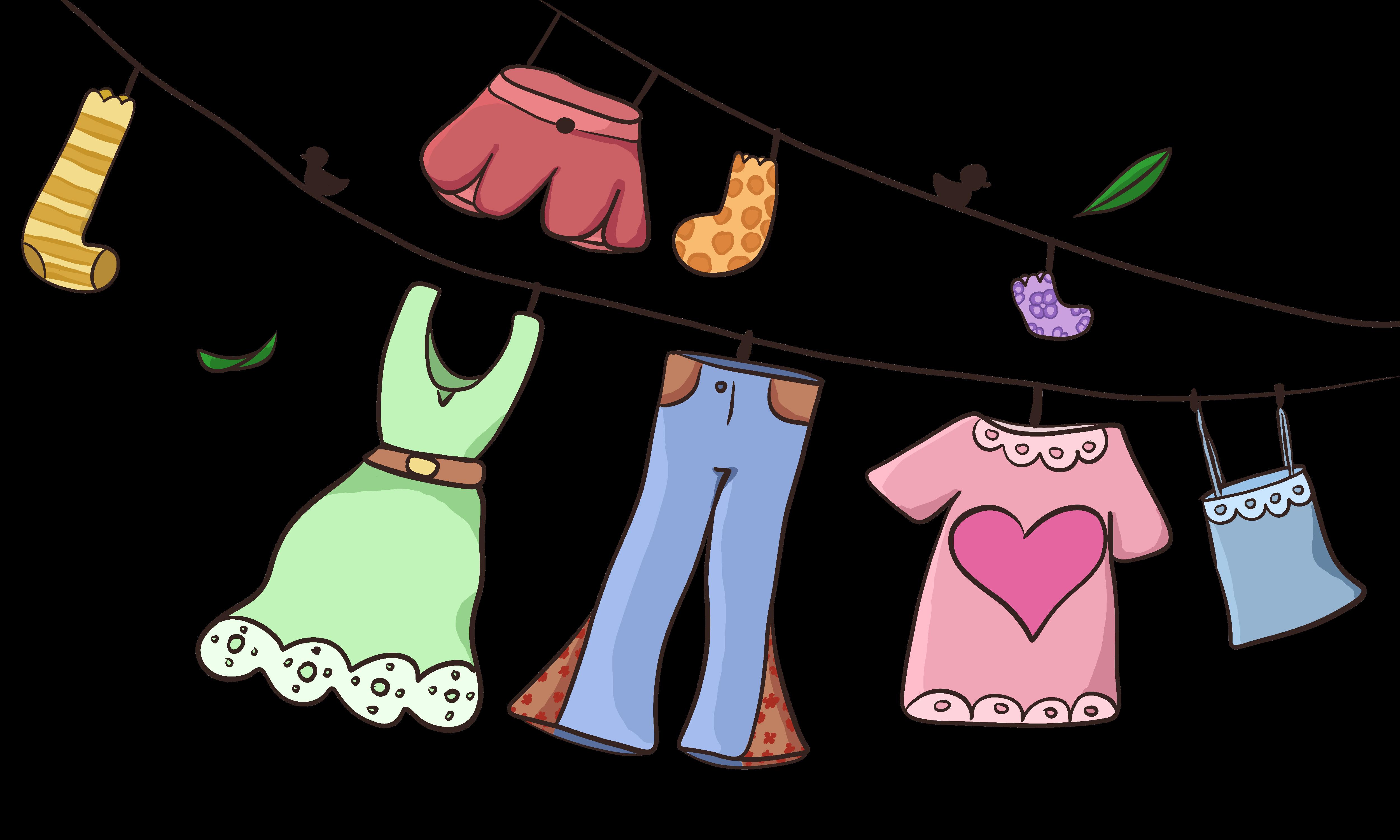
That’s what I am trying to do. Thank you to Hebron for helping me become the person I am fighting to be.

By Tessa Sweeney ’25
The recent arrest of Rumeysa Ozturk, a PhD student at Tufts University, is pivotal for student journalists and those who believe in the fundamental rights of free speech and due process. Ozturk’s only “crime” appears to be co-authoring an op-ed in her university’s student newspaper—an act that should be seen as an exercise of civic engagement, not punished with detention and deportation proceedings.
On the evening of March 25, Ozturk was seen walking alone in Somerville, MA, on her way to an Iftar dinner, when she was instantaneously surrounded by six plainclothes officers. Surveillance footage shows the officers did not identify themselves until after physically restraining her, confiscating her cell phone, and pulling cloth coverings over their faces. Within a minute, Ozturk was handcuffed and placed in an unmarked SUV, whisked away from her community and denied access to her lawyer or even her medications for hours. Her friends and family were left in the dark for nearly 24 hours. This kind of abduction—masked persons, no immediate charges, no access to any sort of counsel—seems more like a script of an authoritarian regime than an episode from a country that prides itself on the rule of law and civil liberties.
What makes Ozturk’s case particularly alarming is the reason behind her detention. According to her legal team and multiple independent observers, the only concrete action cited by authorities is her involvement in the publication. The piece criticized the university’s handling of pro-Palestinian activism and called for greater transparency regarding university investments related to the ongoing conflict in Gaza. Federal officials have made vague references to “activities in support of Hamas,” but no evidence has been presented to substantiate any criminality. The American Civil Liberties Union (ACLU) of Massachusetts has publicly stated, “That single op-ed is the only basis of Rumeysa’s continued detention. She has now been imprisoned in Louisiana for over two weeks without any reasonable justification.” The op-ed itself, available for anyone to read, is a thoughtful critique of the university policy and a call for humanitarian awareness. By targeting Ozturk for her writing, the government is sending a harmful message to the people: dissenting voices, especially those of international students, are not welcome and may be met with severe consequences.
Over the past several years, there has been a noticeable increase in government scrutiny and punitive measures against international students and scholars who speak out on controversial issues, particularly regarding the Israel-Palestine conflict. The Trump administration revoked hundreds of visas and targeted foreign individuals at elite universities, often on flimsy or undisclosed grounds. Human rights organizations have condemned these actions as violations of both the U.S. Constitution and international law.
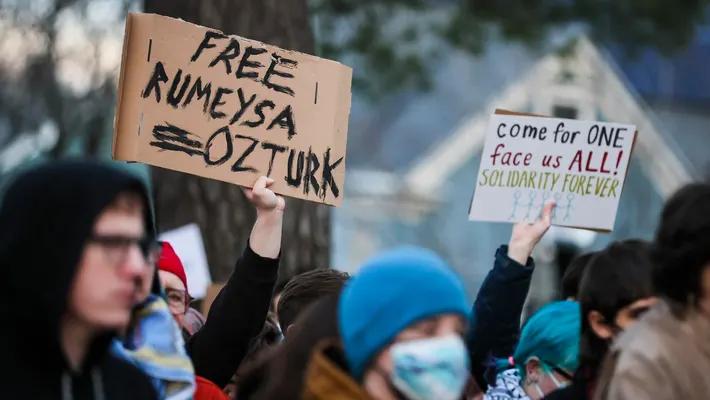
This crackdown has created a climate of fear and self-censorship. Students who once felt empowered to engage in open debate now worry that their words might be used against them, not just in academic settings but in legal proceedings that could determine their ability to remain in the country.
For student journalists, the implications are profound and deeply unsettling. Student newspapers have long served as laboratories for free expression, critical thinking, and civic engagement. They are where many young people learn to question authority and investigate injustice, and articulate their beliefs. If writing an op-ed can lead to arrest and deportation, what incentive do students have to speak out on issues that matter? The First Amendment is supposed to protect all Americans, including students and noncitizens, from government retaliation for speech. Yet Ozturk’s case demonstrates just how fragile those protections can be when powerful institutions decide to silence dissent. The outpouring of support for Ozturk from professors, peers, and civil liberties groups underscores

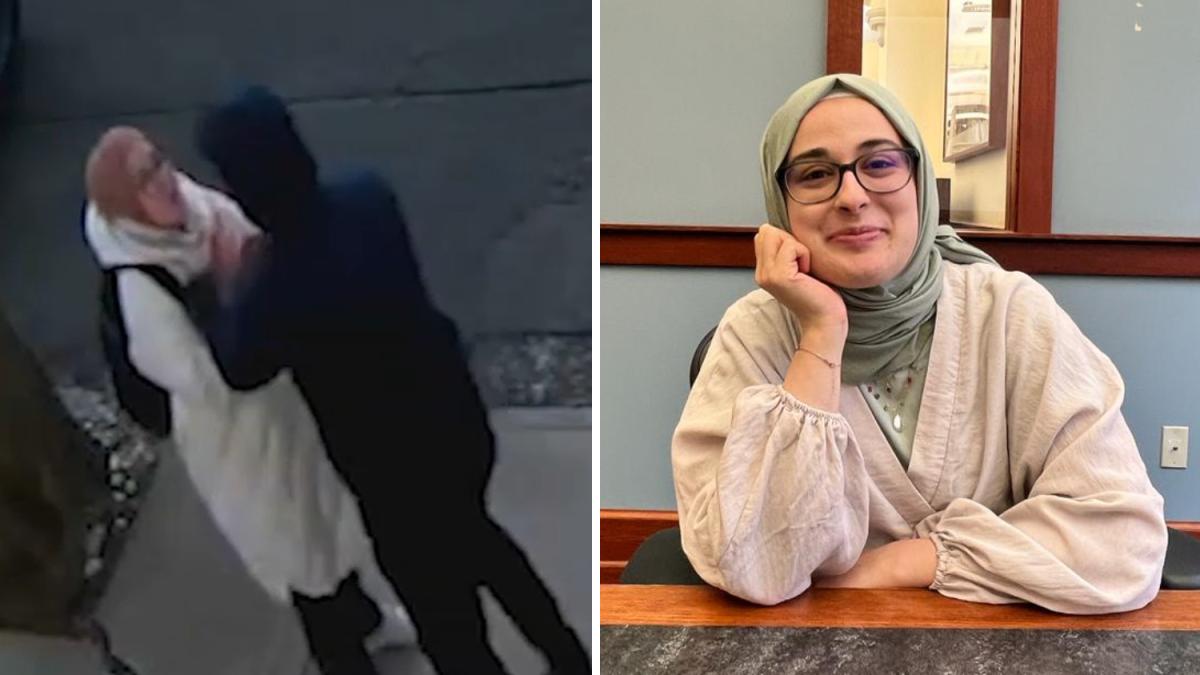
The United States has long presented itself as a beacon of free speech and due process—a place where ideas, even unpopular ones, can be expressed without fear of government reprisal. The forceful arrest of a student journalist for her writing is a direct contradiction of these ideals. As a member of the faculty at Tufts put it, “If we allow this to happen without protest, we are complicit in the erosion of our most basic freedoms.” Her detention is more than a personal tragedy, it is an example of our future of free expression on American campuses. If universities and government agencies are allowed to target students for their speech, the chilling effect will be immediate and severe. This is not just a matter for international students or those involved in Middle Eastern politics, but a threat to the academic and journalistic integrity of every campus in the country.
Rumeysa Ozturk’s arrest is a stark reminder that the rights we take for granted can be eroded with alarming speed. Her case demands our attention and our action—not only to secure her release, but to reaffirm our commitment to the principles of free speech, due process, and academic freedom. As a student journalist and editor of a student-produced magazine, I can’t help but imagine what it would feel like to be punished or even arrested simply for expressing my opinions or reporting the truth. The thought is chilling. As a woman, I am especially aware of how easily voices like mine can be silenced or dismissed, and how vital it is to stand up for those whose rights are under threat. As a student-journalist, I know that our job is to question, to inform, and to challenge injustice —no matter the risk. And as an American, I recognize that the freedoms I often take for granted are not universal, and that it is our responsibility to defend them wherever they are under attack. Her story is a powerful reminder that the fight for free expression is not abstract or distant—it is personal. It could be any of us. That’s why we must speak out, not just for her, but for everyone who dares to tell the the truth.

Works Cited
“Student First Amendment Rights – First Amendment Clinic.” Uga.edu, 2024, firstamendment.law.uga.edu/issues/student-first-amendment-rights/. Accessed 8 May 2025.
“USA: Free Speech on Campus Needs to Be Protected, Not Attacked, Say Experts.” OHCHR, 2024, www.ohchr.org/en/press-releases/2024/07/usa-free-speech-campus-needs-be-protected-not-attackedsay-experts. Accessed 8 May 2025.
Faheid, Dalia, and Gloria Pazmino. “A PhD Student Was Snatched by Masked Officers in Broad Daylight. Then She Was Flown 1,500 Miles Away.” CNN, 29 Mar. 2025, www.cnn.com/2025/03/29/us/rumeysaozturk-tufts-university-arrest-saturday. Accessed 8 May 2025.
Pazmino, Gloria, et al. “What We Know about the Tufts University PhD Student Detained by Federal Agents.” CNN, 27 Mar. 2025, www.cnn.com/2025/03/27/us/rumeysa-ozturk-detained-what-we-know. Accessed 8 May 2025.
Faheid, Dalia, and Andy Rose. “Tufts University Student and Government Argue in Court Whether She Can Challenge ICE Arrest.” CNN, 14 Apr. 2025, www.cnn.com/2025/04/14/us/rumeysa-ozturk-arrest-updatetufts-university. Accessed 8 May 2025.
“In New Filings, Rümeysa Öztürk’s Legal Team Argue for Her Release from ICE Detention | American Civil Liberties Union.” American Civil Liberties Union, 13 Apr. 2025, www.aclu.org/press-releases/in-newfilings-rumeysa-ozturks-legal-team-argue-for-her-release-from-ice-detention. Accessed 8 May 2025.

By Kellen Anthoine ’26
There is a very human flaw that prevents many people from recognizing and understanding the constantly evolving world order, and that is myopia. As a general rule of thumb, generations growing up during economic booms expect the same experience for their future. Similarly, generations being raised in economic depressions prepare for the worst. Why wouldn’t they? When a person only sees a zoomed-in fraction of a lengthy and multifactorial cycle, it’s almost impossible to recognize that it is one. It just looks like a line. For many of us growing up in the 2010s and 2020s, it’s difficult to imagine a world at war. It’s even more difficult to imagine a world where the United States does not rank number one in every measure of power; however, as the situation with tariffs and trade tensions evolves, threats of this reality become much sharper and more clear. China is on the rise in terms of world power as the United States falls deeper and deeper into its state of national debt, political polarization, religious disconnect, and socioeconomic division. All of this is nature, and occurs over and over again in history.
Strong leadership starts the big cycle of rising and falling world powers. For the United States, there were figures such as George Washington, Thomas Jefferson, and Benjamin Franklin. These well-respected and effective leaders foster a positive, hard-working culture in the community of the nation. This, of course, leads to a competitive economy, resulting in strong economic growth and the development of strong markets and financial centers (like the NYSE, CME, New York City, Chicago). Promising markets attract foreign investors who appreciate the currency with their abundant cash funneling into the economy. Now we’re nearing the top. The economy is booming and stable, we have established our currency as a global reserve and safe-haven, while poverty, unemployment, inflation, and interest rates are all low and sustainable (the USA experienced these conditions in the 1950s). What could go wrong? These times of prosperity and abundance sow the seeds of contentment, which is a very problematic state of being. The successful markets and low interest rates make the rich richer and the poor poorer, the strong currency makes goods from foreign countries with weaker currencies much cheaper and more appealing by comparison, profitable business and lives of luxury in the middle class decrease competitiveness, and the growing trade deficit looms over the heads of many government officials who all rationalize feeding the fire by drawing the crowd’s attention to their regimes. In case you couldn’t tell, none of these things are good for anyone in the country. The widening wealth gap causes discontent among the people and eventually riots from the poor (who blame the rich for everything and are at the same time being blamed for everything by the rich). The unfavorably strong currency directs businesses' attention to foreign sources of manufactured goods. The low competitiveness feeds into a lazy society and weak leaders, and the debt burden eventually becomes too big to bear and leads to lower interest rates, then quantitative easing, then money printing in mass quantities, and eventually hyperinflation. Civil war is often the breaking point for a country when it gets to this point, however, foreign invasion is not uncommon. That governmental death marks the end of the big cycle. From the ashes of this slain giant, a new world order will be born.

Where is the United States in this big cycle? If you, as the reader, paid any attention whatsoever in the previous paragraph, the answer should be obvious to you: it is on the decline. Yes, that’s right: the great United States of America isn’t at the top. No. It is already past that. Socioeconomic status is already becoming black and white, with some people having billions while many in large urban areas suffer from poverty and homelessness. Political views are becoming extreme and polarized, causing more and more violent protests, riots, acts of extremism, and even a raid on the Capitol. The debt burden remains the highest of any country in the world at 121% of GDP in 2024, and is rapidly increasing as it buys more and more foreign goods while the vendors buy less and less American goods. Uh oh.

The US, from this lens, looks more like a great beast, say a lion, on its last legs, wandering through the desert in search of some sort of asylum and escape from its many burdens and responsibilities. The lion is not alone; a vulture circling its prey waits patiently for the right opportunity. This bird of prey’s name is the People’s Republic of China. Maybe a vulture isn’t the best analogy for China, though, because a vulture simply waits for an animal to die and then feeds on its carcass. That’s part of its plan; however, the country has also been pulling strings to speed up the process for quite some time now in many different ways. These methods of depreciation and degradation are considered acts of war. If we choose to consider this as the case, then we are already unknowingly in a war against China, a new type of war that focuses on psychological, digital, economic, and biological destruction as opposed to physical. China’s Methods of Exploiting American Vulnerability
Chinese exploitation and manipulation of American culture began in the late 1990s, once the PRC had established itself as a dominant power. The first case was in 1996 in the aftermath of a US-made Chinese satellite exploding while attempting to launch. The manufacturing company, Hughes Electric, was aiding in the investigation of the failure when they were coerced by Chinese officials into submitting to them valuable confidential information on not just satellites, but also expertise on improving the accuracy of ballistic missiles. Specifically, the types of missiles were designed to be used intercontinentally and could reach the United States if launched from China. This was a direct threat to national security. Espionage has always been a part of war, and that will never change. After US officials began heavily investigating this breach of classified information, China turned to much more subtle methods, such as influencing American culture through vehicles like social media and education. The Confucius Institutes began integration into American universities in 2004, shortly after their founding. The purpose of these programs was allegedly to teach Mandarin Chinese in foreign nations; however, they also happened to softly influence college students into believing false information about the Great Leap Forward, the Tiananmen Square incident, and the state of free speech in China and sovereignty in Taiwan. The programs, of which federal funding was cut in 2022, have been referred to as “the Chinese Trojan Horse.” A much more well-known and modern example is TikTok, a product of ByteDance (which is funded by the CCP).

decreases attention span, subtly pushes anti-American narratives, glorifies nihilism, and encourages users to be isolationist and prioritize short-form entertainment over social connection. The platform contributes to the political divide as well, with its algorithm specifically designed to create echo chambers of opinions that leave the consumers bitter at the thought of opposing beliefs. All of these effects together constitute what makes up the factors of a culture declining and decreasing in quality, a culture that will eventually bear the responsibility of revolting against its government. As for the economic side of things, the PRC’s expansion into foreign markets and significant investment in cheap manufacturing have both weakened the USA’s diplomatic leverage across the globe. Part of this regime is the export of extremely low-priced and low-quality goods, such as those available on Temu or SHEIN. The goods themselves are also made with toxic chemicals and with environmentally and ethically questionable practices. The sale of these products negatively affects public health while simultaneously feeding consumer addiction to convenience and low prices. Finally, the COVID-19 Pandemic. First being discovered in Wuhan, China, the virus killed millions of people and completely disrupted the global economy in the process. The origins of COVID are very unclear, however, there is a considerable amount of speculation that it was engineered in a Chinese government-controlled lab to be used as a form of biological warfare against the West. Those who argue this point to the fact that the widely accepted origin is very close to the Wuhan Institute of Virology and that the man who discovered the virus died shortly before being able to share his insights on the matter. All of these subtle yet impactful Chinese plans of action have been degrading American culture, national security, and health. Note that many of these cases are widely disputed and are not concretely factual.
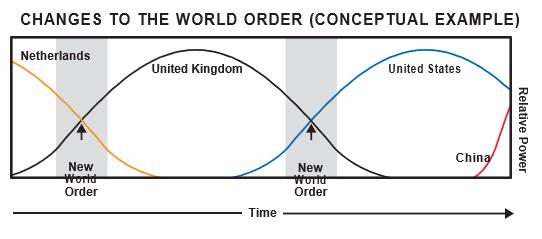
Aside from the measures to weaken the United States in several ways, the PRC has seen unbelievably quick growth over the last century. It has taken itself out of the dirt from being a developing country into being the global superpower that it is today. On the surface, this story is inspirational, however, the reality is much darker. The reason China has pulled itself up by its bootstraps this rapidly, and the same reason that it is such a threat to the US, is its government’s lack of morals. From the Great Leap Forward to the One
Child Policy to the exploitation of young, underpaid children in factories with dangerous working conditions to the purposeful devaluation of their currency, China has shown no recognition of ethics in the equation of success. That is what makes it so dangerous: the fact that it is willing to sacrifice its people to further push its regime. It will stop at nothing to get what it wants. That’s terrifying.
After reading the above sections, you are probably convinced that China is fully capable of and very set on taking over the United States slowly and subtly, wrapping around it and suffocating it like a boa constrictor. This is all very true; however, there is a very important factor that has not yet been discussed: the fears of population collapse. Every year, China sees fewer and fewer births per hundred people. This phenomenon, which is occurring across eastern Asia, makes the population older and older on average, which not only creates more job vacancies that are yet to be filled, but also less demand for consumer goods. The real estate market in China is the best example of this, as fewer and fewer houses are being built and bought since the majority of adults already own one and are not seeking another. All of this is a direct result of the One Child Policy that ended in 2016, which left a lasting effect not just on the statistical population, but also on the mass psychology of those who would consider having children. In short, people are less inclined to have more kids because of being estranged from the idea and having established a subconscious belief that fewer children are better.
So, where are we now? Is China a threat to national security? Is the US falling apart slowly from the inside? Should you be scared? Terrified, even? Well, the simple answer is that it’s unclear. That’s probably not the answer that you were looking for after reading six pages of information on the subject, but it’s the absolute truth. Predicting the future geopolitical landscape is an extremely difficult thing to do, as not only are the factors unknown, but also the number of factors. This makes the equation unsolvable, however, we can make an estimated guess that is probably pretty close to accurate. Assuming things continue as they are now, tariffs placed on China by the United States will force it into a corner and cause it to make some haste changes to its trade policy. It will probably set up shop in the US, and depending on how strict the government is when it comes to Chinese companies based on American soil, the PRC will either back off from the US and adopt a “wait-and-see” approach or will integrate itself further into American culture, slowly turning it against itself from the inside. It’s hard to say, though, considering that the vast majority of factors are unknown and that many events have not yet unfolded. In conclusion, don’t bet on either outcome. Instead, just watch and wait, prepared for anything and everything unexpected to happen.

By Noah Romanelli ’27
There’s no denying that social media has become a huge part of our lives. For most teens, it’s the first thing we check in the morning and the last thing we look at before going to sleep. But behind the filters, likes, and endless doom scrolling, as we call it, there’s a much bigger issue, one that’s seriously affecting how we grow, think, and see ourselves.
Our generation is supposed to be the future. We’re expected to be the ones who solve the world’s problems, lead change, and build what comes next. But how are we supposed to do any of that when we’re constantly glued to our phones? Social media is slowly pulling us away from reality, and we don’t even notice it happening.
One of the biggest issues is how it affects self esteem. We’re constantly exposed to highlight reels of other people’s lives, perfect bodies, expensive clothes, fun parties. Even if we know it’s all fake and filtered, it still makes us feel like we’re not good enough. The pressure to always look a certain way or seem like we’re living our “best life” is exhausting, and it’s damaging how we view ourselves.
There’s also the fear of missing out. Seeing other people out with friends or doing something exciting while you’re at home can make you feel left out, even when you were totally fine a minute ago. It creates this constant feeling of comparison, which can seriously affect mental health. I've personally felt that feeling before and let me tell you, it's not a fun feeling.
And then there is the time we waste. Social media is designed to be addictive. We scroll for hours without even realizing it. I've noticed in my life as well, I could open Instagram for just a minute and before you know it, forty-five minutes have passed. That is time we could be spending on things that actually matter: hobbies, goals, or even just resting our brains. Instead, we’re stuck in this cycle that is hard to break.
What’s scary is that this is becoming normal. We don’t talk to each other the same way anymore. We struggle to focus, to be present, to just exist without needing to share it online. And if we’re not careful, we’re going to grow up thinking this is how life is supposed to be.


The truth is, social media is doing more harm than we think. It’s shaping how we develop, how we think, and how we connect. And if we want to have any shot at being the generation that makes a difference, we need to start being honest about how damaging this really is.

By Louisa Strong ’26
64% of Hebron Academy students surveyed use AI on school work at least to some extent. 29% use AI on school work more often than they do not. On a national level, AI usage in teens is higher than ever and abilities to complete basic school work are noticeably lower even in the most elite colleges in America. Why is this? There are lots of factors to consider when looking at the academic decline in this student generation, like a shrinking attention span, shrinking expectations from teachers, and, most importantly, AI usage. Using AI for school work impairs students’ creative thinking, their originality, and their work ethic.
To discover if AI usage and work ethic are correlated, first the definition and value of work ethic must be clearly decided upon, since this is a topic with many contrary perspectives. The key elements of work ethic, to those who study it (like psychologists and sociologists), are diligence, responsibility, integrity, and dedication. In action, work ethic means consistently putting the time into your work because of the value hard work holds and not what you will receive in return. Work ethic is a societal value that has long been ingrained in how households stay afloat, how government systems are set up, and how ideologies and religions preach. For example, the muslim perspective on work is that it “holds intrinsic value, irrespective of possible financial gains or impact on social status” (Ghaly). This emphasizes the idea that work is not made valuable by the reward, but by the effort you put into it. Actually putting in the work is about more than just morals; it’s also about the ability to do the work, because how can work ethic be measured when the ability to do the work is not there?
Jennifer Long, an author at Harvard Business Publishing, claims that it is not enough to know a skill in theory, but that you need to practice in order to maintain the skill. In other words, the more students use AI for their homework, in any way, the less they will be able to do the skill that they are plugging into the program, which ultimately impacts their work ethic.
Another downfall of generative AI is its lack of originality and its impact on the user’s creativity. Studies show that students not only found it harder to think of original ideas after using ChatGPT on a prompt, but students using AI ranked lower on originality scores than those who went without (Habib). Not only is the students’ own creativity being stunted by AI usage, but the work AI is producing isn’t even more creative in the first place and it makes sense that this would be the case since AI is working from an established base of online resources which is entirely made up of humans’ past intellect and creativity. AI can not really produce something new in the same way that a human can think of something new. When students’ main tools (creativity and originality) are damaged by AI, it is very hard to step out of the cycle of using AI once you’re in it. This impact on creativity and, by extension, work ethic, is not just a theory that may or may not come to fruition; the student generation is already shifting to be less able in school work, whether that be a cause or effect of the rise in AI usage.
This isn’t about somehow the entire generation being naturally lazy and not wanting “to do the reading. It’s that they don’t know how. Middle and high schools have stopped asking them to” (Horowitch). The decrease in students being able to read extensively and intelligently is a change that other Columbia faculty have observed in contrast to previous generations. Part of the issue with declining reading abilities at one of the highest ranked colleges in the country is students’ lack of ability to focus on work, which is no doubt exacerbated by the rapidity of modern technology and entertainment. If fast-acting tech makes it harder to focus on tasks, then it creates a loop. If fast-producing AI makes it harder to focus on your paper, you’ll want to turn to it for help more often. When you turn to use AI more often, your focus and creative abilities will further diminish, which makes it more alluring to use AI to help cope with the loss of very abilities it is destroying, and so on. Along with this decrease in reading ability and attention span, the student generation has seen a massive increase in AI usage; the percentage of students using AI doubled from 2023 to about a quarter of the teens surveyed in 2025 (Sidoti). Students don’t just use AI as a last-ditch attempt to complete something they no longer have the ability to do; they use it because they think it is okay.
The percentage of teens who think it is acceptable to use ChatGPT to write essays is 18%, and “42% say that type of usage is not OK” (Taylor). Even on this very campus, about 10% of students surveyed ranked using AI to write an entire essay as more moral than not, which was found in a study conducted for this article. It is often hard for people to care about something that they feel is not affecting them and is not going to affect them, so, this study is taking the microscope to the students of Hebron Academy in hopes of revealing something to care about. The study was conducted in the form of a survey, which measured students’ moral standards surrounding AI, their AI usage, their ambition, and their work ethic through questions and an activity. Adults were surveyed as well, but are not the focus of the results. The questions asked participants to rank certain AI-usage scenarios on a scale from 1, being completely immoral, to 10, being completely fine for anyone to do. Overall, the scenarios were ranked moral (or scaled between 5 and 10) 35.5% of the time. In terms of AI usage for school work, 1 being not often and 10 being all the time, students self-reported scores between 5 and 10 (or heavy AI usage) 29% of the time, with a steady increase the older the grade level. For example, freshmen reported heavy AI usage 21% of the time, juniors 33%, and seniors 50%. This rise in usage per grade is in accordance with surveys done by Pew Research Center, though the change between grades is much more stark at Hebron than seen by Pew on a national level. A possible explanation for this rise is the demanding course work and increasing college-related pressures that upperclassmen experience where lowerclassmen do not. These stresses can create a lack of confidence, which, with a decreasing attention span, could be a motivating factor for using AI.
Clearly, Hebron Academy students use AI for their school work quite a lot. But is this impacting their work ethic? It’s likely. This study found that there is a correlation between AI usage and work ethic, at least for Hebron Academy students. The survey measured work ethic by the students’ willingness to keep working at a difficult word puzzle until the end of the ten minute timer. This was measured by looking at whether the student completed the puzzle or not and how much time they reported they had been sitting at the end waiting for the time to run out, not doing the survey.

If the student had not completed the word puzzle and had reported that they had been sitting at the end of the survey for five minutes, for example, this indicated that they were not working to problem solve with all of the available time, and in this simplistic measure, indicated a negative work ethic. If they did not complete the word puzzle and reported having sat for zero minutes at the end, this indicated dedication and a willingness to keep working at something difficult, and therefore good work ethic. Out of Hebron students with heavy AI usage for school work, 42% demonstrated a negative work ethic; for students with minimal AI usage for school work, 19% demonstrated a negative work ethic. Of the age group that ranked the lowest for AI usage, the adults, 0% demonstrated a negative work ethic, in the terms of this study. The jump from 19% to 42% is large and not one that can be dismissed. If students are not willing or able to work at a task because of their usage of or dependance on AI in their work, their capabilities will only continue to decline.
At a preparatory school such as Hebron Academy, students should not find themselves trapped in the cycle of increased usage and decreased ability; it won’t prepare them well for college and beyond. What will happen if students continue on this path? If they are able to keep using AI throughout college and perhaps graduate school, they most likely will not be capable in the fields that AI has pursued for them. You can not use AI whilst performing heart surgery, nor while arguing a court case, nor while forming genuine connections with other people. And say, somehow, using AI carries you to a successful and lucrative career; will you be proud of yourself? You will be living a life of sloth and achievements that you can not fully claim; what merit is in that? So clearly, using AI is not a path of success, at least not when using it to replace and diminish one’s work and abilities.
If you find yourself stuck using AI for your school work, not all hope is lost. It’s hard, but the students interviewed for this study recommended going cold turkey, quitting all at once, forever. One student had a moment of revelation where she thought to herself, “my words aren’t even mine anymore” and after that, she has been determined to earn every grade she gets, whether that be very good or just okay. If you, reading, are the type to need a moment of revelation to spark change, this is it. AI negatively impacts its users’ creativity, originality, and work ethic in a way so direct that it can be observed on Hebron campus. Whether student usage is motivated by stress or laziness, using AI results in a loss of human uniqueness and integrity, which in turn makes students want to use it more, and the cycle continues. AI is going to continue to shape our lives as policies and economics start to favor AI infrastructure. The degree to which big companies and the government value human intellect may be shifting towards the negative, but that doesn’t mean we have to shift with it. Do not handicap your mental abilities in preparation for their loss of value and prevalence; a diamond is only made more valuable by its rarity.
Works Cited
Ghaly, Mohammed. “What Makes Work “Good” in the Age of Artificial Intelligence (AI)? Islamic Perspectives on AI-Mediated Work Ethics.” Springer Nature, Springer Nature, 20 November 2023, What Makes Work “Good” in the Age of Artificial Intelligence (AI)? Islamic Perspectives on AI-Mediated Work Ethics. Accessed 7 April 2025.
Habib, Sabrina. “How does generative artificial intelligence impact student creativity.” Science Direct, Elsevier, April 2024, https://www.sciencedirect.com/science/article/pii/S2713374523000316. Accessed 7 April 2025.
Horowitch, Rose. “The Elite College Students Who Can't Read Books.” The Atlantic, 2024, pp. 14-16.
Long, Jennifer. “The Importance Of Practice – And Our Reluctance To Do It - Harvard Business Publishing.” Harvard Business Publishing Corporate Learning, 27 April 2016, https:// www.harvardbusiness.org/the-importance-of-practice-and-our-reluctance-to-do-it/. Accessed 9 April 2025.
Malesic, Jonathan. “When Work and Meaning Part Ways.” Hedgehog Review, University of Virginia, 2018, https://hedgehogreview.com/issues/the-evening-of-life/articles/when-work-and-meaning-part-ways. Accessed 9 April 2025.
Nelson, Brent G. “AI and Teen Mental Health: The Pros and Cons | PrairieCare.” Prairie Care, 9 August 2024, https://prairie-care.com/resources/type/blog/ai-teen-mental-health/. Accessed 7 April 2025. Santoni de Sio, Filippo. “Artificial Intelligence and the Future of Work: Mapping the Ethical Issues.” Springer Nature, Springer Nature, 14 September 2024, https://link.springer.com/article/10.1007/ s10892-024-09493-6. Accessed 9 April 2025.
Sidoti, Olivia, et al. “Share of teens using ChatGPT for schoolwork doubled from 2023 to 2024.” Pew Research Center, 15 January 2025, https://www.pewresearch.org/short-reads/2025/01/15/about-aquarter-of-us-teens-have-used-chatgpt-for-schoolwork-double-the-share-in-2023/. Accessed 7 April 2025. Subramanian, K. “Myth and Mystery of Shrinking Attention Span.” Research Gate, vol. 5, no. 3, 2018, pp. 1-6.

By Ms. Erin McKee
One quick look at my reading tracker in my classroom, and it’s immediately obvious: I love romance and romantasy. Give me a strong female heroine and a sweeping love story any day of the week. Heck, I’ll read a book a day if I have a cozy seat and some silence.
I’m certainly not alone in this. As of the writing of this article, both Fourth Wing and recent series addition Onyx Storm by Rebecca Yarros are in the top five New York Times best sellers for combined print and e-book fiction, along with Summer in the City, a romance by Alex Aster. Paperback trade fiction’s top five also features three romance novels. And young adult hardcover? All five are romance.
This hasn’t always been the case. The romance genre and its various sub-genres were always on the bottom shelf at the library or, even safer, the ebook version that allowed for readers to keep the cover hidden in a way that physical copies can’t. Diana Gabaldon, award-winning author of the romantic, genre-bending historical fiction series Outlander, once said, “If you call it romance, it will never be reviewed by The New York Times or any other respectable literary venue.” It’s never truly been considered “real” literature. According to journalist Angelina Mazza in her article “Enemies to Lovers: On the Romance Genre’s Mainstream Come-Up,” so many women have been made to believe over time that “the writing is bad, people who read about sex are deviant, the genre lacks intellectual merit—whatever that means—and isn’t worth their attention.”
Yeah. Okay. Tell that to #BookTok, and watch the rabid readers descend.
#BookTok—or #Bookstagram, or #Booksky, depending on your social media of choice—is the ever-expanding corner of social media dedicated to the love for and appreciation of books, primarily those of the romance persuasion, and I am a proud, card-carrying member. It’s a limitless digital book club that I don’t have to trudge out into the snow to get to; it’s all here, on my phone. Scroll, cosplay of Nesta and Cassian. Scroll, fanart of Xaden. Scroll, “Here's my book haul!” Scroll Dramione stan forever. #BookTok has been responsible for the rise in romantasy in the years during and since the pandemic, and it has also catapulted many authors of these genres from the dark, unread caverns of self-publishing into the blinding light of mainstream publishing. Book stores now have special tables and sections dedicated to #BookTok favorites, and the fevered popularity has even allowed some all-romance book stores to open across the country, such as Open Door Romance in my very own St. Louis, Missouri, or Grump & Sunshine in Belfast, Maine.

But what is romantasy, and why is it suddenly so popular? The word “romantasy” is a portmanteau between romance and fantasy. According to CNN’s Scottie Andrew, romantasy “blends the otherworldly escape of high fantasy with the emotional payoff of romance novels.” Bookseller Gideon Ariel calls it “Swiss Army lit” for the way the subgenre merges the high stakes of fantasy with the satisfying emotional intelligence of romance, pulling in fans of both genres into one big happy family. And in recent years’ political climate, it’s easy to see why the genre has become so popular: Nothing makes you want to crawl into a different world quite like catastrophe in your own.
You know what makes that different world even better?
The love interests.
Middle schoolers, look away, ‘cause Ms. McKee’s about to get real.
Rhysand, High Lord of the Night Court, is hot. All these romance novel love interests are ridiculously attractive, and that’s by design, I know, but good lord. Purple eyes? Wings? A strong jaw? Are you kidding me?
I don’t want to objectify, though, because it’s not just his looks. In fact, it’s not even primarily about his looks. When Feyre, the main character, is being mistreated and frightened by her current love interest, Rhysand drops everything to get her out and to safety. When Feyre says she’s not comfortable with something, Rhysand takes it as seriously as a heart attack. When Rhysand keeps information from Feyre, resulting in her being incredibly angry and going away to a remote area for a while, Rhysand gives her space, then goes to her, penitent and contrite, and—GET THIS—he explains everything, pouring his heart and mind out to her, the picture of teary-eyed vulnerability.

Let’s summarize that: 1. He protects her from harm; 2. He listens to and respects her wishes; 3. He acknowledges his mistakes and is comfortable being vulnerable.

Is that so much to ask?
Apparently, yes. Ask any single adult and they’ll tell you: Modern dating is a minefield. I’ve been ghosted, talked at, made to feel uncomfortable, and so much more. One man spent three hours lecturing me on his anarchist beliefs; it was like the political version of the guitar scene in the “Barbie” movie. Another time while out one night, my ex glanced up to see me looking at him beseechingly as a man flirted with me and invaded my space, but my ex just went back to his conversation. There are countless stories that I and so many others have, but the long and the short of it is that dating is not the fun and light-hearted romp through ice cream shops it once may have been.
In fact, more and more women are voluntarily opting out of the whole circus for their own safety, particularly as influencers and movements encouraging misogyny increasingly find purchase in a corner of the internet known as the manosphere. Says Karen Ashcraft, an author and professor at Colorado University Boulder, “[These movements are] a viral stew of aggrieved manhood—the seething sense that real manhood is under attack and must fight back.” Men under the thrall of such influencers and movements often believe in tiers of humans, where some men and women are simply better than others and therefore more desirable. Many believe in gender roles for women that would revert us to the 1950s. These movements also perpetuate a disrespect—or even hatred—for men who seek to bring their female partners joy, often referring to these men as “simps.”
Is it truly any wonder women are writing and reading men like Rhysand?
But it’s not as though the women in these novels are doe-eyed Disney princesses waiting on a prince to save them. Oh sure, the prince eventually rolls up, but not before the female main character has channeled into the depths of magic she by all rights shouldn’t possess to slay a massive beast, all while cradling her broken arm and actively bleeding out, thereby protecting the citizens of the realm to her dying breath. Or something. The point is, these women are powerful and strong and capable in their own right.
Perhaps the popularity of romance novels, particularly romantasy, among women is due to the experience of watching a woman they admire or can see themselves in, go through hell and back, then be rewarded with someone who actually cares about her on the other side.
That’s it. He cares about her.
What a novel concept.

By Sylvie Gill ’26
You may have heard of the movie Confessions of a Shopaholic; I only watched it once, and though the plot was not that good, I related to the main character on a deep level. You know that feeling when you buy something new? When you get the perfect new shirt, and all you can think about is what you’re going to wear with it the next day, or even when you are just opening a package you got in the mail; it could be something as simple as shampoo, but you still feel exhilarated as you rip open the cardboard box. I, for one, know this feeling very well. I love buying things, but what I don’t love is when I look at my bank account after a trip to the mall and see the number $2.57 staring back at me. As it turns out, I am not the only person with this problem; millions of people in America are shopaholics and on a far greater level than what I experience. The question is why, and what does this addiction to consumerism mean for the world?
Consumerist culture is not new in America, and in reality, our whole economy has been largely based on consumerism since the Industrial Revolution. During the Industrial Revolution in the before the 20th century, consumerist ideals began to surface in the American economy as factories began to produce products on a mass scale, and other items like food and clothing became more readily available to the public. With the invention of electricity and it becoming more accessible to middle-class homes, the creation of products which used electricity, like refrigerators and radios, revolutionized the consumerist economy in the 1920s. More and more people began to buy more and more, and this trend decreased only for a short time during the Great Depression. After WWII, in the late 1940s, the US's hunger for consumerism came back in full force, and the public began to immerse itself in consumer culture as the invention of television began to sensationalize consumerism through widespread advertisement. Companies began to rely heavily on and exploit this new shopping culture. According to a writer for The MIT Press Reader, corporations purposely targeted the psychology of the masses, working to make the consumer “feel he is upgrading himself socially” (Higgs). This culture of consumerism has continued to increase over the years, taking off even more with the invention of online shopping. The younger generations, Millennials and Gen Z in particular, are especially at the forefront of consumer culture, with over one-third saying they suffer from a shopping addiction (“A Generation of Shopaholics? Troubling Rise of Shopping Addiction Among Gen Z and Millennials”). But what really causes people to become so addicted to shopping? Research shows that consumerism is in fact fueled by psychology and that people’s brains are often predisposed to shopping addictions.
Since the beginning of consumerist culture, big corporations have preyed on the masses, exploiting mental illness as well as simple brain function to get people to buy things at increasingly high rates. In an article about the psychology behind shopping addiction on the website Big Think, it is said that shopping stimulates dopamine release which “floods our system when we buy new things” (Bell).

dopamine release which “floods our system when we buy new things” (Bell). This is because shopping stimulates the reward system in the brain. When you are planning on buying something, your brain is anticipating a reward, so once you purchase the item, the “reward pathway of your brain lights up”, which activates the dopamine receptors in your brain, causing a rush of happiness (Bell). However, this reaction eventually wears off, causing the cycle to likely repeat itself. People who already suffer from mental health issues are even more likely to fall into this cycle as they use it as a coping mechanism. Becoming addicted to shopping can have devastating effects on the individual, causing them to lose all their savings, while at the same time, owning more than they could ever use in a lifetime. The industry exploits these brain functions, with no care for the massive consequences on people, in order to push consumerism onto the public through a constant bombardment of flashy advertisements everywhere you look. However, this consumer culture doesn’t only affect the financial stability of American citizens, but also the physical well-being of people all around the world.
As a consumerist nation, the USA imports tons of products into the country, but the waste that it exports is even more astounding and has a detrimental effect on the planet. In 2021, The US Environmental Protection Agency “estimated that Americans threw out nearly 51m tonnes of plastic …, or about 140 kg per person” that year alone (Colwell). At the same time, in Ghana, about 15m items of secondhand clothing are imported every week, eventually ending up rotten and washed up on their beaches (Colwell). The US’s mass consumption of items like fast fashion results in extreme amounts of waste which often end up becoming the responsibility of other countries and contribute to the ever-growing issue of ocean pollution and other climate matters. While consumer culture has benefited America in many ways, like by providing jobs and more economic stability, the extreme consequences far outweigh these positive impacts.

Wars over non-renewable resources have killed so many, and climbs in production have increased damage to the climate, exterminating whole species of animals, using up water sources, and creating “‘garbage patches’ floating across the world’s oceans, with infinite bits of microplastics working their way into food webs” (Colwell). If something isn’t done to fix this, this country we have built upon consumerism, along with the rest of the world, is heading towards an uncertain and dark future.
I am a self-proclaimed shopaholic, and though I may not be a compulsive shopper, with no control over my urge to purchase things, I recognize that I, like many, am drawn to the allure of buying things on a whim and without thinking about if I really need them. This issue affects people all over America and is promoted by society as a way to give back to the economy when, in reality, it is only putting money in the pockets of millionaires while simultaneously contributing to the ever-growing issue of excess waste, which affects both the world’s land and oceans. If we are to help solve this problem, the fundamental roots of American spending culture must change. We must move away from consumerism and focus on only buying what we really need. We must do this, not just for the sake of our bank accounts, but for the sake of our world as a whole.
Bell, Jaimee. “The Psychology of Shopping Addiction.” Big Think, 3 March 2020, https://bigthink.com/ neuropsych/psychology-shopping-addiction/. Accessed 7 May 2025.
Colwell, Chip. “Too much stuff: can we solve our addiction to consumerism?” The Guardian, 28 November 2023, https://www.theguardian.com/environment/2023/nov/28/too-much-stuff-can-we-solve-ouraddiction-to-consumerism. Accessed 7 May 2025.
“A Generation of Shopaholics? Troubling Rise of Shopping Addiction Among Gen Z and Millennials.” The Summit Wellness Group, https://thesummitwellnessgroup.com/blog/rise-of-shopping-addiction/. Accessed 7 May 2025.
Higgs, Kerryn. “A Brief History of Consumer Culture.” The MIT Press Reader, 11 January 2021, https:// thereader.mitpress.mit.edu/a-brief-history-of-consumer-culture/. Accessed 7 May 2025.

By Mathilde Boisvert ‘27

For the past few weeks, we’ve seen people at Hebron Academy find it a bit more difficult to control and keep up with their mood. Of course, a lot would say that they are getting tired with the end of the school year and that their schedules are getting busier, but is that really the reason?
I’ve seen my closest friends change their attitude with me in the past few days of spring. One day is the best of their life, the next one is the hardest, as they are hardly able to say ‘hi’ to others. As I tried to explain this, I realised one day was warm and sunny, the other was grey and rainy. The weather impacted them more than we could have imagined.
Many studies were done to prove this hypothesis, like the one published by Science in 2003. The research showed that people were way more helpful and generous on sunny days than rainy days. In one experiment, they observed that people were more likely to return a lost letter when the weather was enjoyable than on cloudy and rainy days (Science). It all made sense. I prefer warm days myself, as I think a lot do. I am happier when I wake up with the morning sun spilling through my window. I am happier when it is not so windy during practice. I am happier when I see people are happier. I feel less heavy and drained about all of the homework we have when I know I can go outside after school, take a walk, and enjoy the fresh air, instead of freezing to death and not being able to see five feet in front of me.

On the physical side, the sun brings vitamin D and boosts serotonin in the body, which is known for making people feel better and more energetic. Many enjoy going outside, especially when it’s beautiful, to do training or practice physical activities such as running, walking, biking, and hiking. To push even further, the weather affects a lot more than just the individual health of humans. During 2003, there was a huge European heatwave that killed over 70,000 people. This disaster even led to public and governmental reflection on climate change, urban planning, and elderly care. This event was considered a wake-up call that weather isn’t just background noise, it can directly affect health, habits, infrastructure, and even politics.
So next time we find ourselves feeling unusually unhappy, unmotivated, or just drained, it might be worth it to take a look at the sky. The weather doesn’t just impact the landscapes around us, it shapes us as humans too. Being at Hebron, surrounded by nature and greens, it is easy to forget how surroundings can shape us, especially between exams, athletics, and social life. Maybe we’re not just moody or distant, but simply humans trying to navigate both the inside and outside of those clouds.


By August Miller ’30
Waste, litter, plastic bottles, beer cans, empty shot bottles, food wrappers, and cigarette butts are not what I want to see with my mountain top view. I hate when people walk up the mountain and pass by trash cans at the trailhead, and they don’t think of packing out trash or throwing away food waste and excess trash later. They go to the top, relax, and then dump it there, and expect others to pick up after them.
When I’ve hiked a long trail and expect a good view, what stands out is what doesn’t belong, like the trash left behind from others. There are trail workers and good samaritans who have to clean up the party crew’s trash when they are irresponsible with their waste.
It hurts the earth when people leave behind trash. The ones who litter don’t care about their impact on the environment. The plastic won’t decompose for hundreds of years, and animals can think it’s food and eat it and get sick or injured.
It’s so annoying because if they had room for all the stuff they brought in, they would have space to bring the empty packages back with them. The experience for all the other hikers is affected because they feel guilty when they don’t pick up litter on their way up or at the top–even if it isn’t theirs. These selfish and careless people disrespect animals, plants, park rangers, habitats, and other hikers.

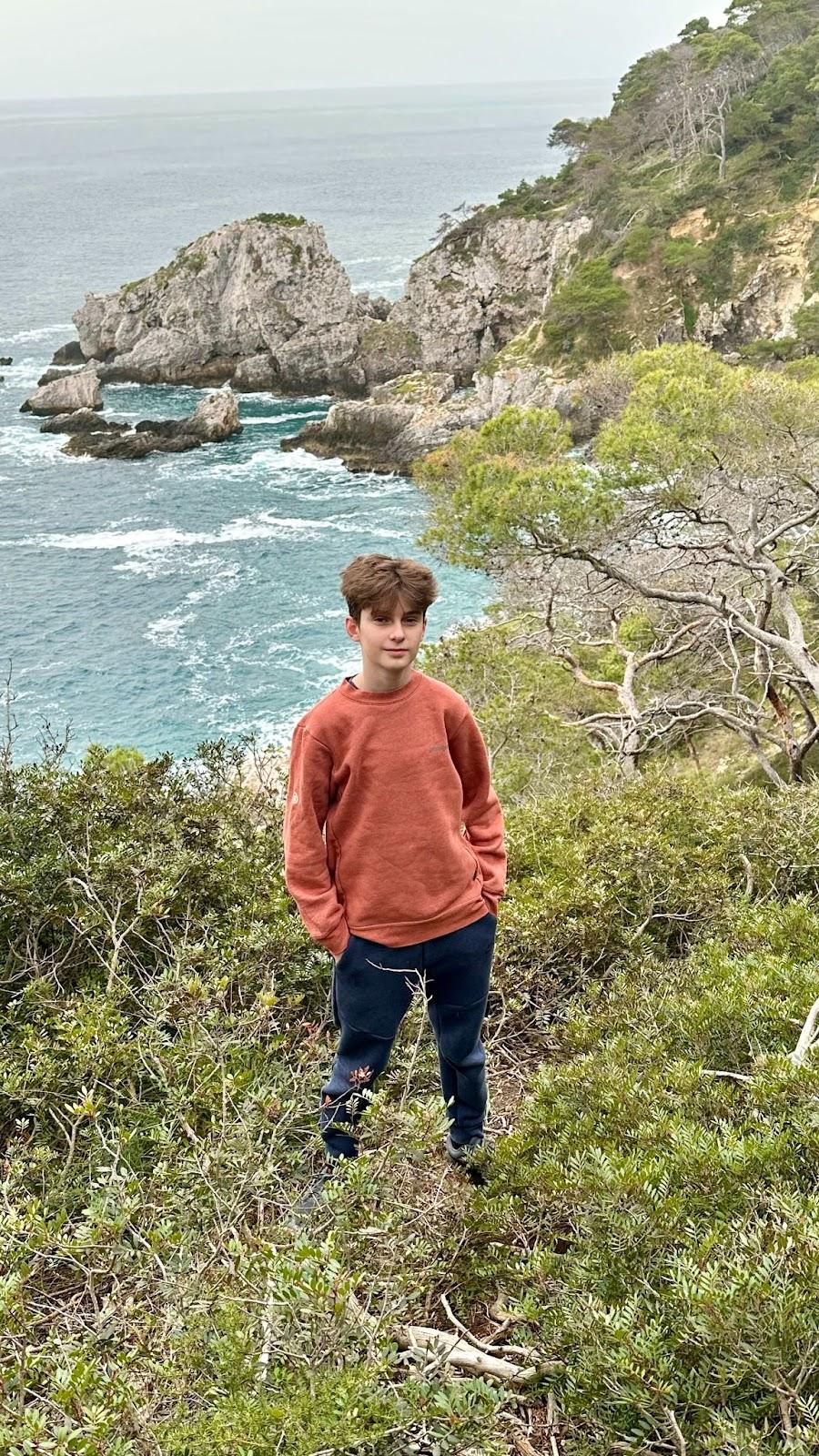
By Oscar Gronros ’26
Laying in my bed, I turned, the black of my room only offset by the bright sliver of light coming from under the door. I checked my phone, 12:36 a.m. I was desperate to sleep. With the window completely open, curtain open, no sheets on my bed, and the most minimal clothing I could, I lay sweating. The heat of the room made my blood boil. I had been waiting since eleven, begging to fall asleep. I looked at the clock, 12:56, and now I was really mad. In a desperate attempt I flipped ends of the bed and completely passed out. The heat still got to me, and I continued to awake and fall back asleep, desperate for any sleep I could get. Suddenly the alarm, eight o’clock already.

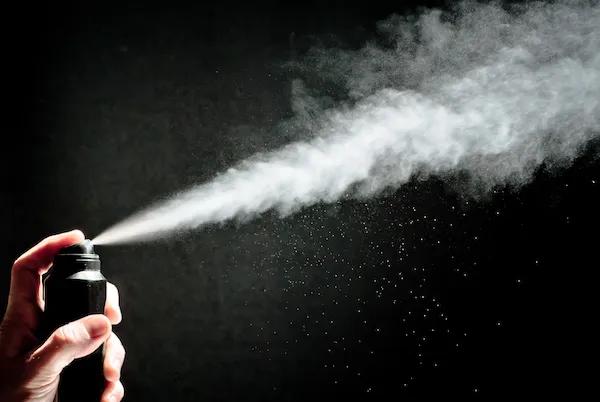
I was left with sadness. My night was wasted. I was exhausted. I felt like a ghoul, but now it was time for school. I started to move, when suddenly I remembered my free block. It was my first class, and I could sleep in. I had until 10:10 to get to class. I could get that much needed sleep until at least 9:30 a.m. Shutting the curtain, picking up my blanket, setting the alarm, I was freed. I felt relieved; now I could enjoy my much colder room and much needed sleep. I listened to the poor suckers going to class and the big truck getting our laundry. The back up alarm beeped, going beep, beep, beep. Suddenly, it got louder and louder. It was as if the car alarm was blaring. I opened my eyes, annoyed, 8:08. My whole room was flashing black, white, black, white. I looked for the source and found the big red box on my wall: The fire alarm.

Shooting out of bed, I put on clothes, grabbed my phone, and left incredibly annoyed. I stood waiting, angry, tired, and already ready for tomorrow. 8:10, 8:16, 8:21, 8:23, 8:28, 8:30, the minutes passed me by as I stood helpless outside waiting to be let back into my own room. Finally we got the word that we were allowed back inside. I got back to my sweet bed and fell asleep. 8:32. 8:36, I awoke to the flashing lights, the blaring sounds, the angry noises from outside my room. I trudged angrily to find the only two other kids standing in the doorway. Begging for answers I yell, “What did you guys do now!” Then an answer from downstairs, Ricky, “Sorry we are trying to fix this detector, it's FULL of Axe Body Spray.”

That’s what it is; the middle schoolers, using that terrible spray. The awful smell of it, the terrible chemicals, I instantly knew who it was. I felt rage as I thought about that spray. I remembered trying it once. I had used it for less than a week before my body had broken out in a rash. I remembered how long the rash persisted, and how I had sworn off Axe completely. I thought I would never deal with it again as I would never use it again and most definitely never let my children use it. Now I was proven wrong. Axe had come back, come to take my morning. 8: 56, the fire alarm again. Blaring before being quickly turned off. I went out and yelled down the stairs, "What's up!” Ricky replied, “All clean,” accompanied with some joke about Atwood. Axe came and it took my rest and there was nothing I could do, 9:00. I couldn’t go back to sleep, not anymore. It would take me at least thirty minutes to fall asleep, and I would just need to wake up immediately. I gave up. Axe had won, beaten me again. I might as well get ready for the day, spend a little more time in the shower, brush my teeth, or maybe even shave a little. I was left standing in the bathroom, looking at the dark circles under my eyes, the smell of Axe filling the room, listening to the same truck start backing up again at some other dorm.
By Elodie Malloy ’30
For centuries upon centuries, women have done everything they can to try and rise above the oppression they face and earn the rights they deserve. When I first came into the world, we were in a good place, however, now as I get older, I am watching our progression move backward in time. With our new president, Donald Trump, women around America watch day by day as our rights disappear, and I am afraid.

I am devastated that I already know that in the years to come I will have to teach my future daughter how to be safe while walking home at night. Now, I am afraid that I am going to have to teach her math and science, because her teachers won’t take a girl seriously. I love my country. I love that America is a melting pot of cultures from all over the world, and how we have foods and friends that teach us about things they do differently. I love that when the citizens of America have a problem they want to be solved, they aren’t afraid to speak up, because the president wants what is best for them. However, lately, no matter how many protests, marches, and speeches we have, our president will not accept that what he is doing is wrong. He knows women are being hurt, and he does not care.
Politicians should not even be in the conversation when it comes to what a woman decides to do with her body. They are taking personal topics and making it a public conversation. I am watching with my own eyes as men make decisions for women, as they try to take control of them.

The scariest part about all of this is the fact that I am on the most privileged side. If I am feeling the impacts of this, then I can only imagine how a million times harder it is being felt by women of color, women of limited means, and women in the LGBTQ+ community.
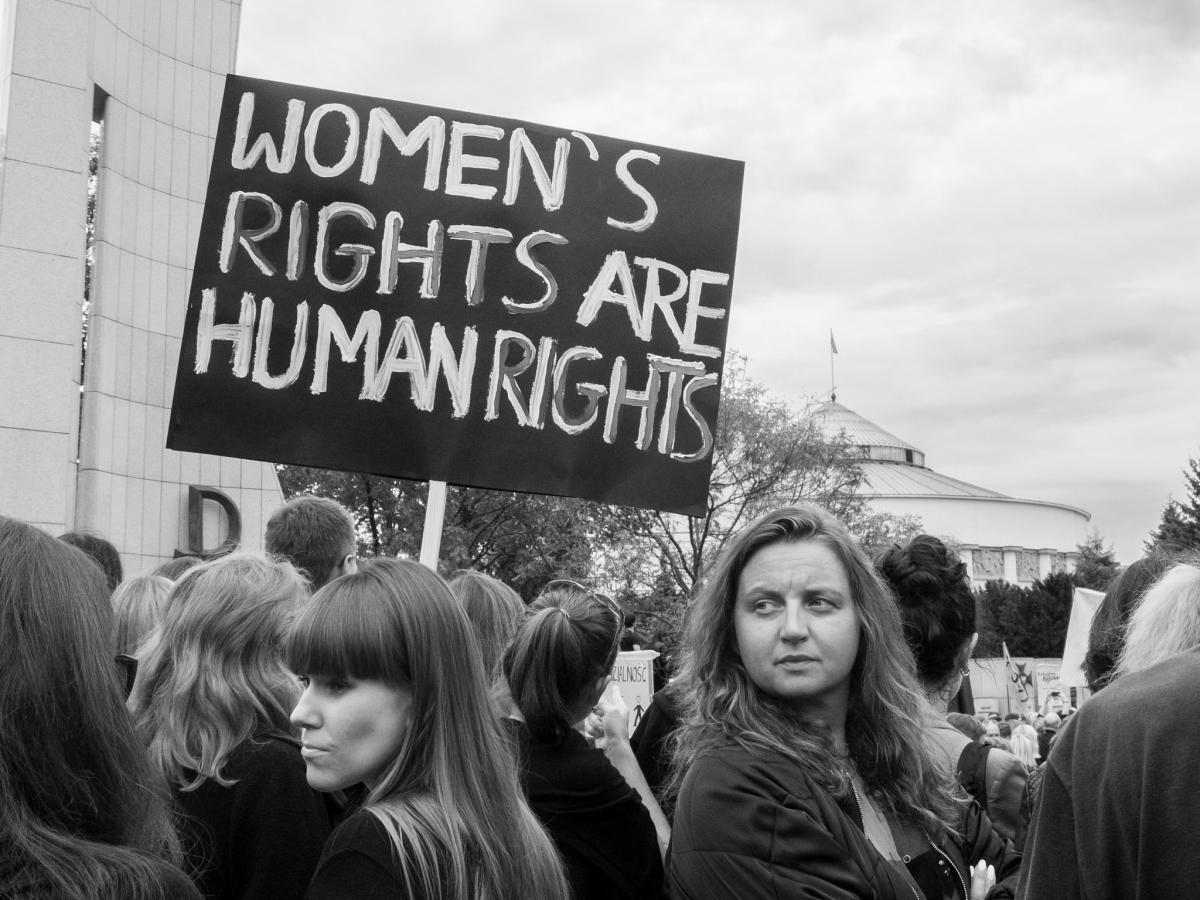
Obviously, right now, women in America have immensely more freedom than women in Afghanistan, or Iraq, and for that I am so grateful and lucky. However, I am worried that, in time, our daughters will have less rights than their mothers. It is important that we do whatever we can to make sure that does not happen. I believe that if we all work together, in a few decades, no woman in our country will know what it feels like to have a president that wants to control them, and they will not have to face the current silencing of girls in America.

By Philip Dannborg Törnberg ’27
When I joined the academy football team at fourteen, I thought it would be the start of something great. This wasn’t just football anymore, this was serious. Structured. Competitive. The kind of place where scouts from the biggest teams in the country sometimes showed up. Where players wore matching tracksuits, had inside jokes, their own way of doing things. They had their own little rondo before training, I had confidence but not enough to just join. I felt like a ghost. I went to the side and started juggling. I could hear them laughing and joking around. I could feel their eyes like headlights in my back.

“Come on, boys,” I heard the coach say.We all formed a loose semicircle around him. I stuck out like a sore thumb. Everyone else had black kits with sponsors, numbers, and names. I had none of that.“Today we have a new player,” the coach said. I took a breath and stepped forward.“Hi, my name is Philip. I’m a midfielder or winger.”
No reaction. “It's nice to have you here,” the coach added. They warmed up in little cliques, laughing about last weekend’s match. Someone's goal, someone's cross, this and that. I had no idea what they were talking about. I just did my own thing, trying to block them out. I gave everything, full effort. I sprinted up and down, passed, found pockets of space, never left my defense out to dry, in the counterattacks. But no matter what I did, no one passed me the ball in scrimmages. My name wasn’t called. I’d make a run and shout “I’m open!”, “Onetwo!”, “Over the top!”, “Overlap!” Nothing. The play always went the other way. It was like talking to a brick wall. Now I have a chance to express myself, I thought. I took on the defender, stepped over to the right, cut in on my left, and took the shot. Boom, crossbar. I still have the image of the goal shaking, engraved in my head. I did not get the ball a single time during the whole session.

The coaches didn’t help either. They just told me they wanted me back and left. I went back to the locker room to change. Coach came in and patted my head, “Good session today, boys,” and gave a few compliments to the regulars.
I was showing up. Every practice. Every sprint. Every drill. But it felt like no one noticed. No one cared.
Game day came. I sat on the bench fully dressed, nerves rattling. Every time someone came off the pitch, I straightened up, hoping my name would be called. It never was. I didn’t get a single minute. Not even when we were five goals up. Not even in extra time.

The walk back home was a quiet one even though we won. I felt numb, The flair I had was gone. The kit that I was wearing did not belong to me. Like my worth was measured in silence.
After that, I got even more quiet, not raising my hand for anything. I showed up thirty minutes before training. Staying late for free kicks, penalties, long balls whatever I needed to do. Something in me, that fire, that confidence dimmed for a while, but I didn’t quit.

Because even when no one saw or heard me, I was still there showing up, quietly refusing to disappear.
By Natalie Lutalo ’26
August 28th, 2024 marked my entry into an entirely new chapter. I was thrilled to immerse myself in an environment so different from my own, but my eagerness for novelty overshadowed the deep appreciation I had for the culture, traditions, and ways of life I had always known. At 2:30 P.M. that Wednesday as I pushed open the Williams Center door, my gaze swept across the large area, taking in every detail. I became acutely aware of my own skin color for the very first time. As I entered, I was immediately struck by a world that looked and sounded different from anything I had ever physically experienced. My eyes scanned the room, searching for a familiar face, a shared accent, a whisper of hope amidst the unfamiliar sights and sounds. But the faces blurred into a sea of unfamiliarity, each smile a reminder of the distance between us. Despite their best intentions, I felt like an outsider looking in, a silent observer in a play I had not rehearsed for. The welcome was warm, the smiles were genuine, and despite the kindness extended to me, I couldn’t shake the feeling that I was observing life through a pane of glass, separated from the world unfolding around me. In that realization, the pressure to conform began to consume me, threatening to silence the very essence of who I was in a quest for acceptance.

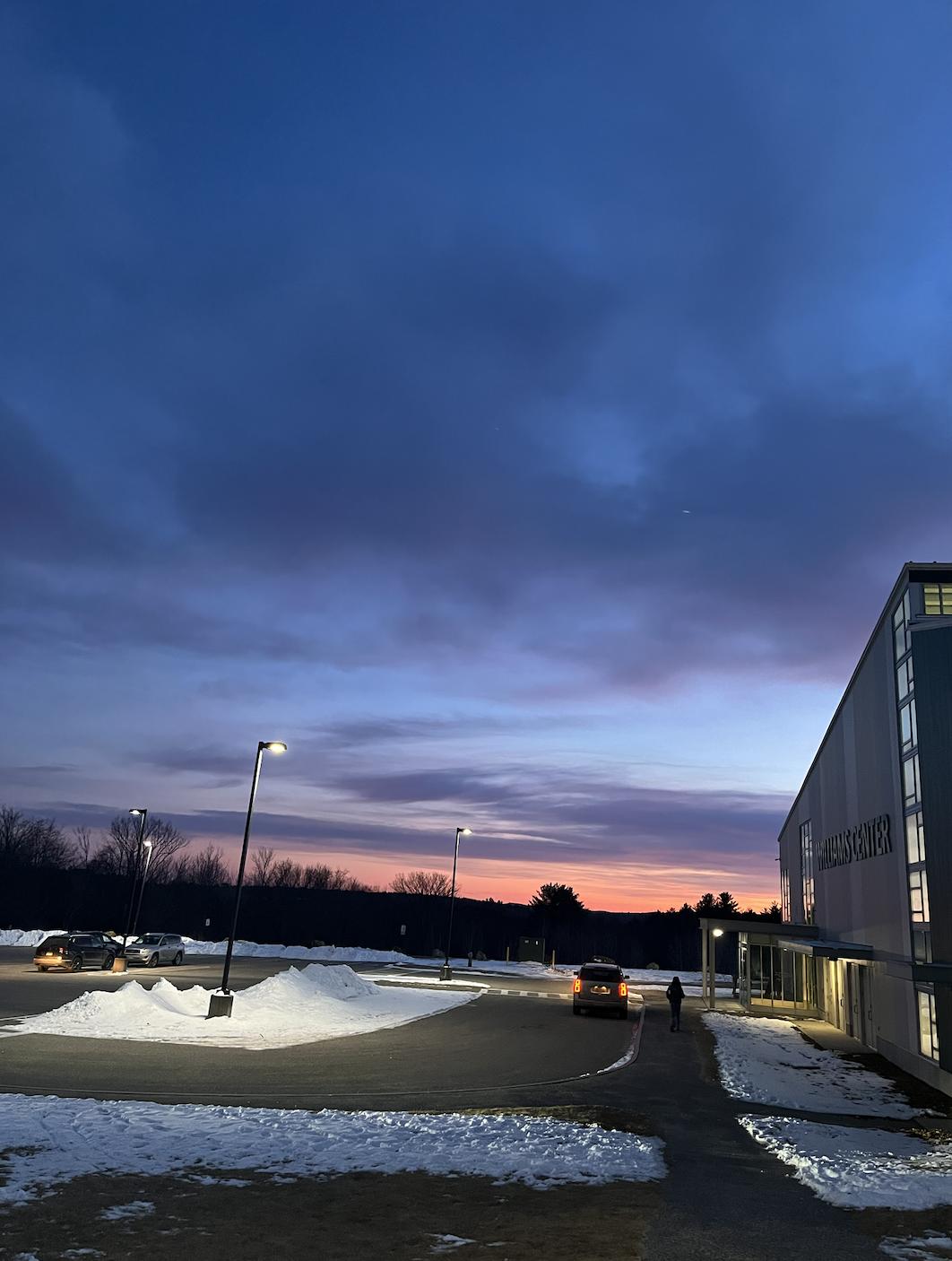

The desire to forge connections in this new world quickly morphed into a silent agreement with myself: I had to shrink. To become more in line, I began to carefully construct a version of myself that wouldn’t be alienated. It wasn’t just about my physical appearance–I had to adopt a subtle accent, carefully curated to mask my origins and repress the booming laughter that once filled my home. When my fingers danced across the keyboard, searching for acceptable alternatives of certain words, those of home like “bambi”, “kina”, or “nsonyiwa” hung on the tip of my tongue, but I swallowed them down, replacing them with a bland “Oh no!”, “such as”, or “that’s unfortunate.” A furrow formed between my brows as someone gossiped loudly, and I smoothed it away, forcing my face into a mask of polite disinterest. Back home, gossip like that would have been met with a sharp intake of breath, a keen “mpisa embi” and an empathetic *tsk*–the familiar click of my tongue against the roof of my mouth. However, I chose to keep it demure, pulling back from the conversation, fiddling with my necklace, and not standing up for the other person so I wouldn’t be seen as a ‘crash out.’ It was a constant, exhausting performance, meticulously framed to ensure I wouldn’t be reduced to the stereotype of “that African girl”–the one deemed poor and “lucky” to have landed here.
This forced assimilation took a heavy toll. Each change eroded my sense of identity, leaving me feeling like a stranger in my own skin. The confident girl, once surrounded by people who looked like her, who embraced her heritage was slowly being replaced by a muted version, carefully calibrated to blend in. With every artificial smile and carefully chosen word, the gap widened between the person I was pretending to be and the authentic self I was trying to suppress. “But what was this all for?” my sister asked. “I don’t know,” I admitted. I had no grand reason. She told me to stop. And I did. In that moment, I realized that it hurt more than it helped, and there was no reason left to justify my silence. It wasn’t the pressure from others, or any external voice. I was silenced by that small voice in my head, wanting me to feel accepted in a place and at a time when I should have been ready to stand out.
Over the year, Dr. Oakes's AP Literature & Composition students have explored numerous forms of poetry to aid in their test scores on the 2025 AP Literature & Composition exam in May. Some forms of poetry the class has explored are sonnets (both Italian and Shakespearean), odes, elegies, pastorals, villanelles, sestinas, and many more. In addition to studying different forms of poetry, the class has reviewed multiple literary elements, including sound, tone, word choice, and rhyme scheme that makes poetry what it is. Not only has the class looked into famous poets and their poems, but they dived into writing their own as well. The following poems are from the eight AP Literature & Composition students in Dr. Oakes's class this year.

By Belle Beauchesne ’25
You are more than just a space for clothing
You hold space for my most dazzling dresses
And for my spring and summer attire. While hidden behind a beige door of secrecy
You contain a collection of colorful creations
That transform me from being Plain Jane
To a mourner, a prom queen, a world traveler
And anything in between to fit the occasion.
Countless times you have held back more than just clothing
Such as knick knacks and junk hidden away
To make my room appear cleaner to my mother’s eye.
You also store blasts from the past
Like my soccer bag, old hockey jerseys, and momentos
I can’t bear to part with.
You hide my secrets and other items I want Hidden from my sister
Like the bag of Swedish Fish I keep on my side of you.
You are a pathway to my sister’s room
Connecting my realm of the house to hers.
You are the olive branch that exists
To let her know I’m just a room away.
So yes, you are more than just a space for clothing

You are a museum, a vault, a secret passage.
All hidden behind the disguise
Of an unassuming beige door.

By Kate Dilworth ’25
I hate the dirt and the stupid vines I dislike the worms that think my gardens theirs sounds like water running through the lines the leaves are eaten by their teeth, who cares?
Early in the morning, they look at me and frown
Oh, But when they are ripe to be eaten when I stand in that room of red I drown
Bursting tomatoes makes me feel mistreated.
Planting is the ultimate endless chore I hate my Hands stained green with pollen transplanting is the ultimate bore I can’t wait till these plants are old and forgotten
Ted eats them like candy so sweet Oh and I would rather eat raw horse meat!


By Emma Frumiento ’25
A January wind blows in my face
Squinting, I'm blinded by the bright white snow
Ears burning red as I pick up my pace I sigh when I sit, relieved from the blow
How I hate winter, pray soon she might leave I dream of warm and preciously long days
Where my shirts like to bear a shortened sleeve
Soon will arrive June’s gentle summer haze
Snow begins melting and my eyes soften
Sprouts and buds start to exhibit color
Serenades from birds make my ears blossom
Worries smoothed to salty yellow butter
I sigh once more, this time I am joyful
Summer is here, no need to be mournful.


By Evan Miller ’25
Every morning, I open my window to a view
Of Maine’s mountains, trees, and skies so blue
People flock to see the colored leaves of fall
And stay for the winter to have a ball
The snow-covered winters are what many love
With the mountains all ready for skiing with a powder-covered glove
When spring arrives and the snow starts to melt
The warmth of the sun is what can be felt
With summer being the best in Maine
All my worries are away and slain
With the rivers and lakes running straight to the coast
As New England’s best state, they love to boast


By Salwa Saeed ’25
“Maybe in another universe, we never left Home”
Home is not just a place or a word
Its where I once ran through the streets of Jalalabad, Laughter rising with the dust, feet light as the wind, Believing the whole world was mine.
It’s where I listened to my grandmother’s stories, Tales as old as Rome, whispered beneath the cold winter's night, Joy flowing through me like an endless river, unbroken, unstoppable.
Home is where my roots run deep, Where a child once sewn into my soul.
Life at home was sweet, full of color and songs
Where I ran into my mother’s arms
Pockets heavy and full with Eid’s money, heart weightless with joy. Home where my story began, where it still belongs.
By Tessa Sweeney ’25
Within walls where doubt and shadows dwell, Where societal pressures seek to define, I stand against conformity's spell, Protecting essence of my truest mind.
Though voices whisper I should bend and sway, Conform to patterns others may design, My inner truth charts it's honest way, Through seas of rude eyes—I shan't align
Let others craft their masks of pale disguise, While I embrace the raw and unconfined, My genuine self—blemished, imprecise— Emerges stronger, beautifully defined
Within this truth, my deepest courage sings: Authenticity has unbreakable wings.

By Krum Tsvetkov ’25
Home is: where mom sings better than the birds, Where people are happier than the Sun, Where I would get the long awaited hugs, Where a father sheds a tear for a son.
Friends waiting for me because I promised, But does anyone know, oh do they know? About the countless, sleepless nights I've cried; What else can I do, but go with the flow.
Time will come when we will be together, It will not be for long, but it will count. I will feel like I am on a feather, Because there will be no fault, guilt or doubt.
And I wonder why I'm so far from you, When I dreamt to be forever with you.
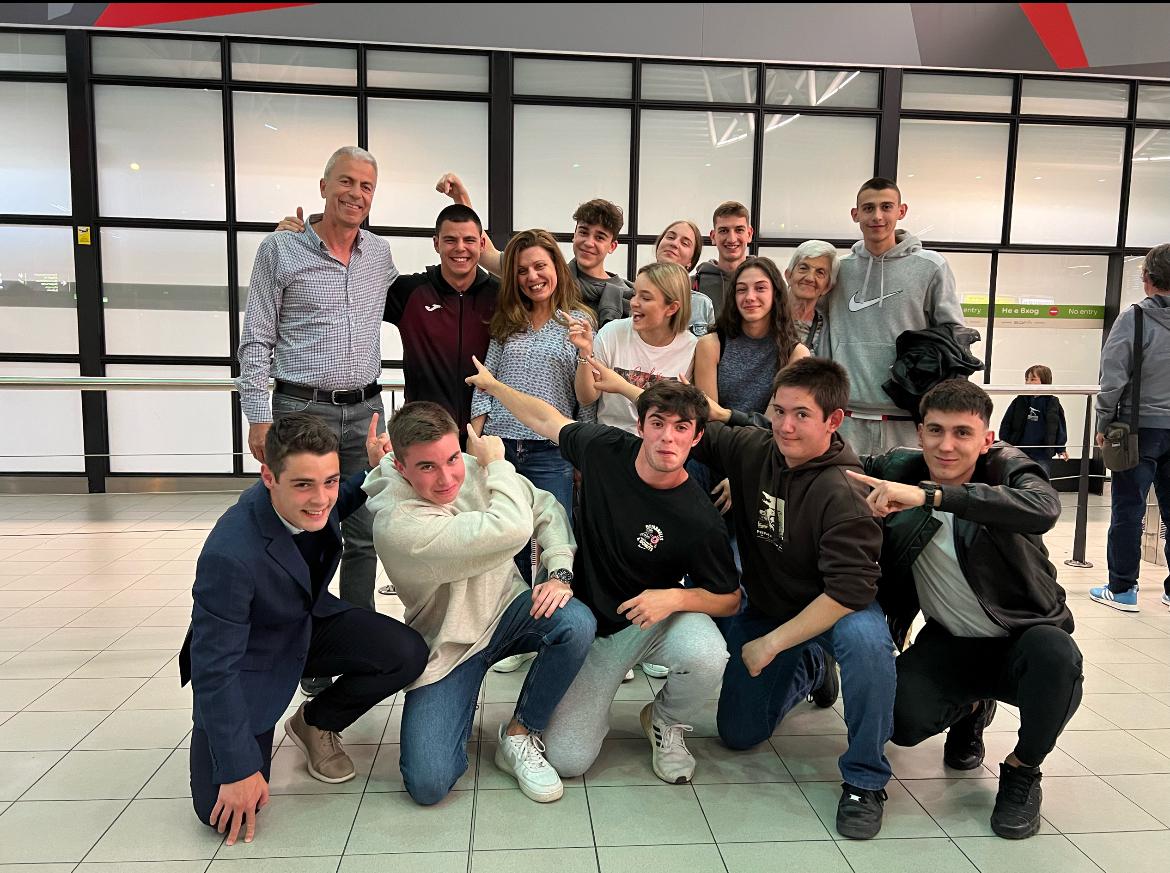

By Nazar Vialichka ’25
Steel is tempered by fire; it does not crack in cold. Alloys need time to become refined. It’s the only way to survive in this world.
From your very birth, remember what you were told: Real men don’t whine, even when they’re tired, for Steel is tempered by fire; it does not crack in cold.
When there is a chance, you better have a strong hold: There should be no hesitation when chasing desire, if It’s the only way to survive in this world
When you were at school, remember what they taught: Good is not enough; you must be aiming higher. Steel is tempered by fire; it does not crack in cold.
Work until you can’t, work until you’re old. Hate when people say it, I cannot admire them, but It’s the only way to survive in this world.
Now you know it all; you’re a perfect mold. Go and tell everyone, before you retire, that Steel is tempered by fire; it does not crack in cold. It’s the only way to survive in this world.

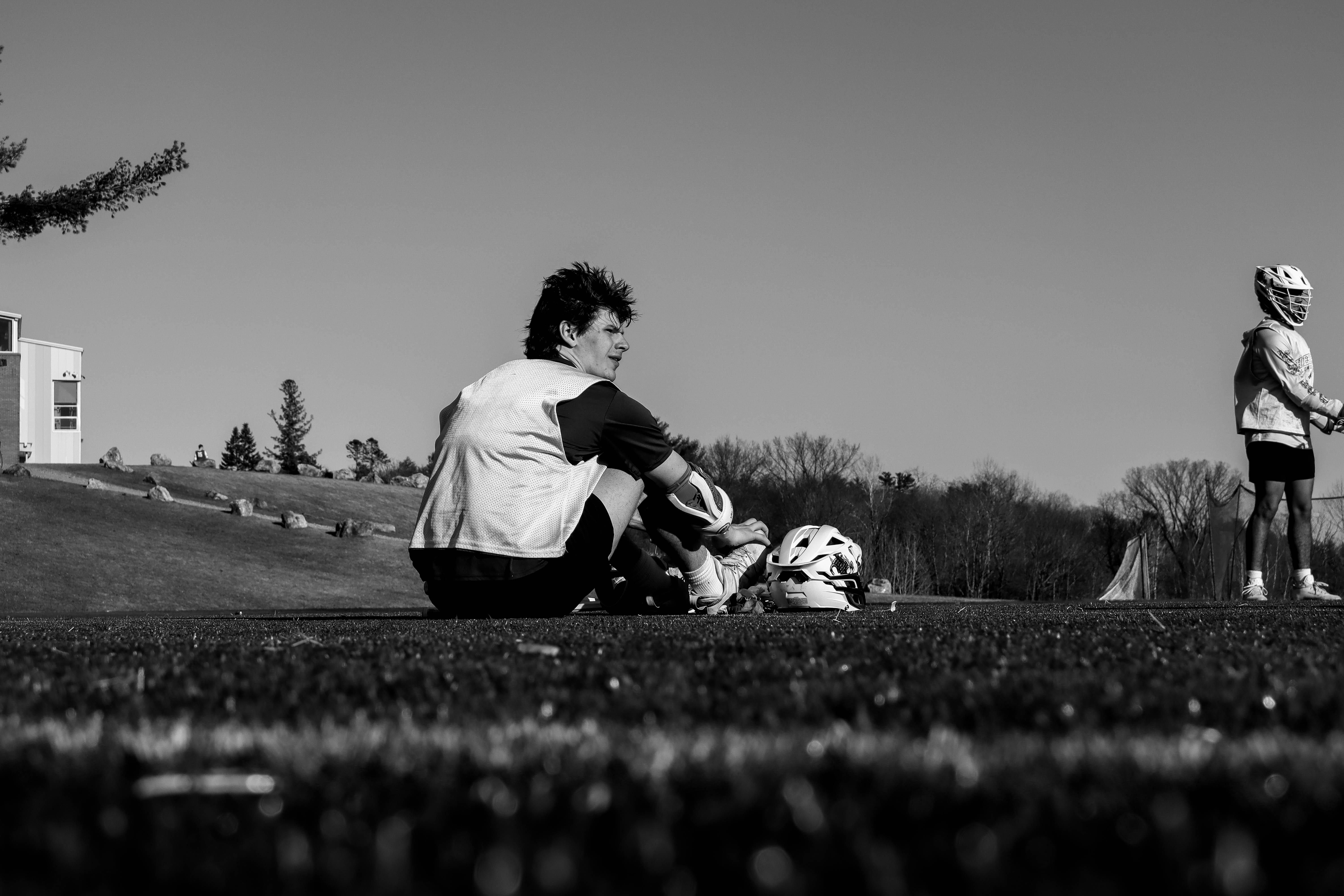
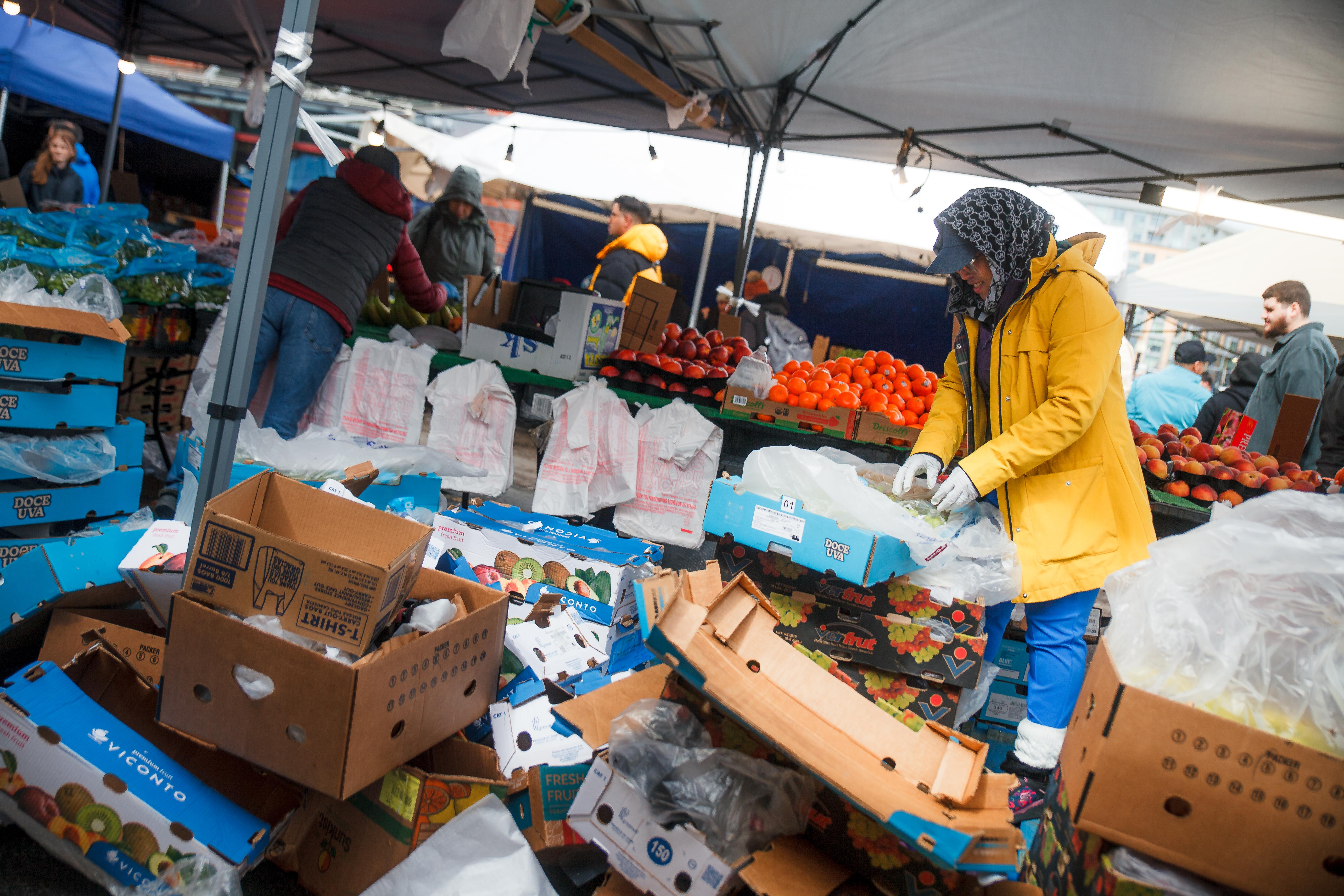


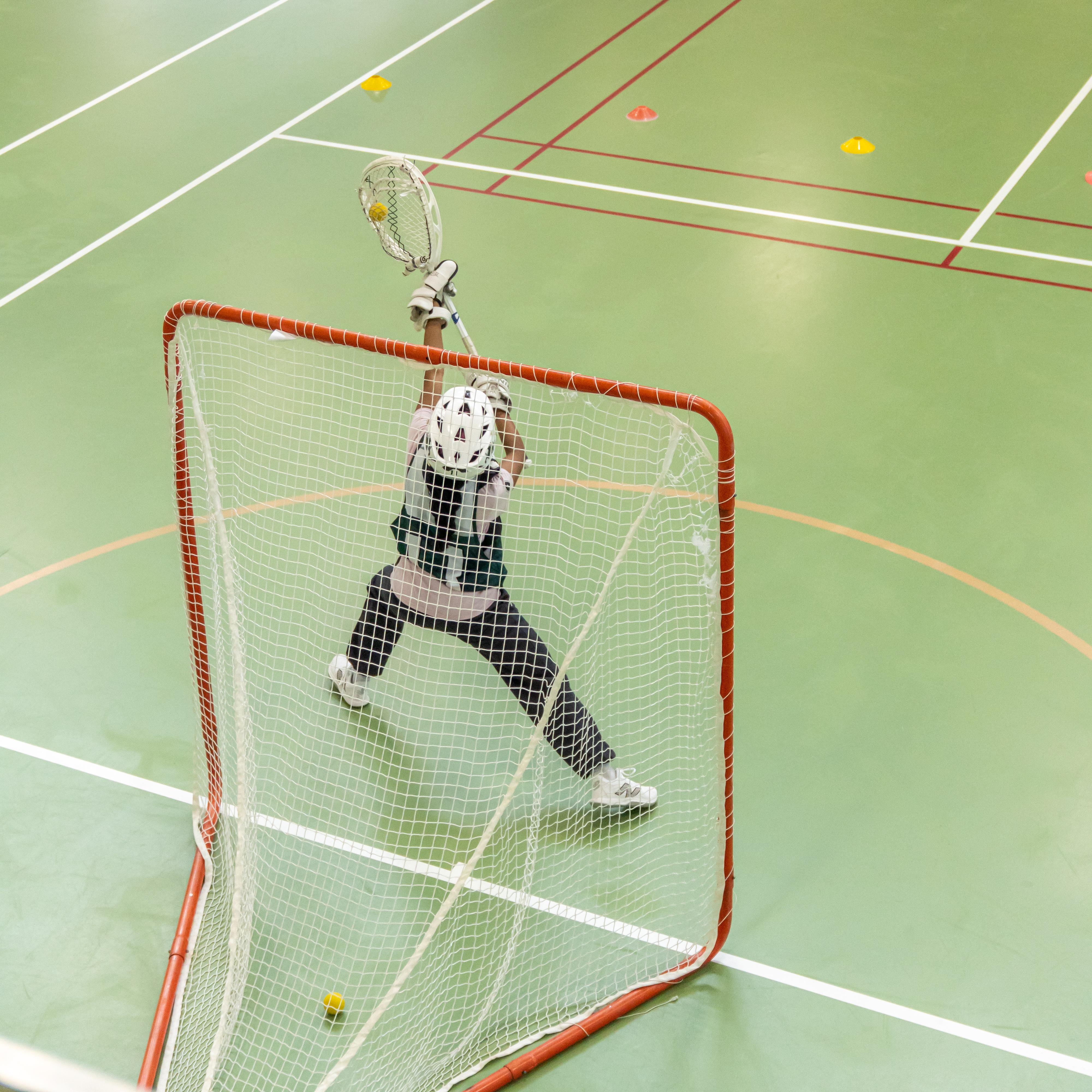
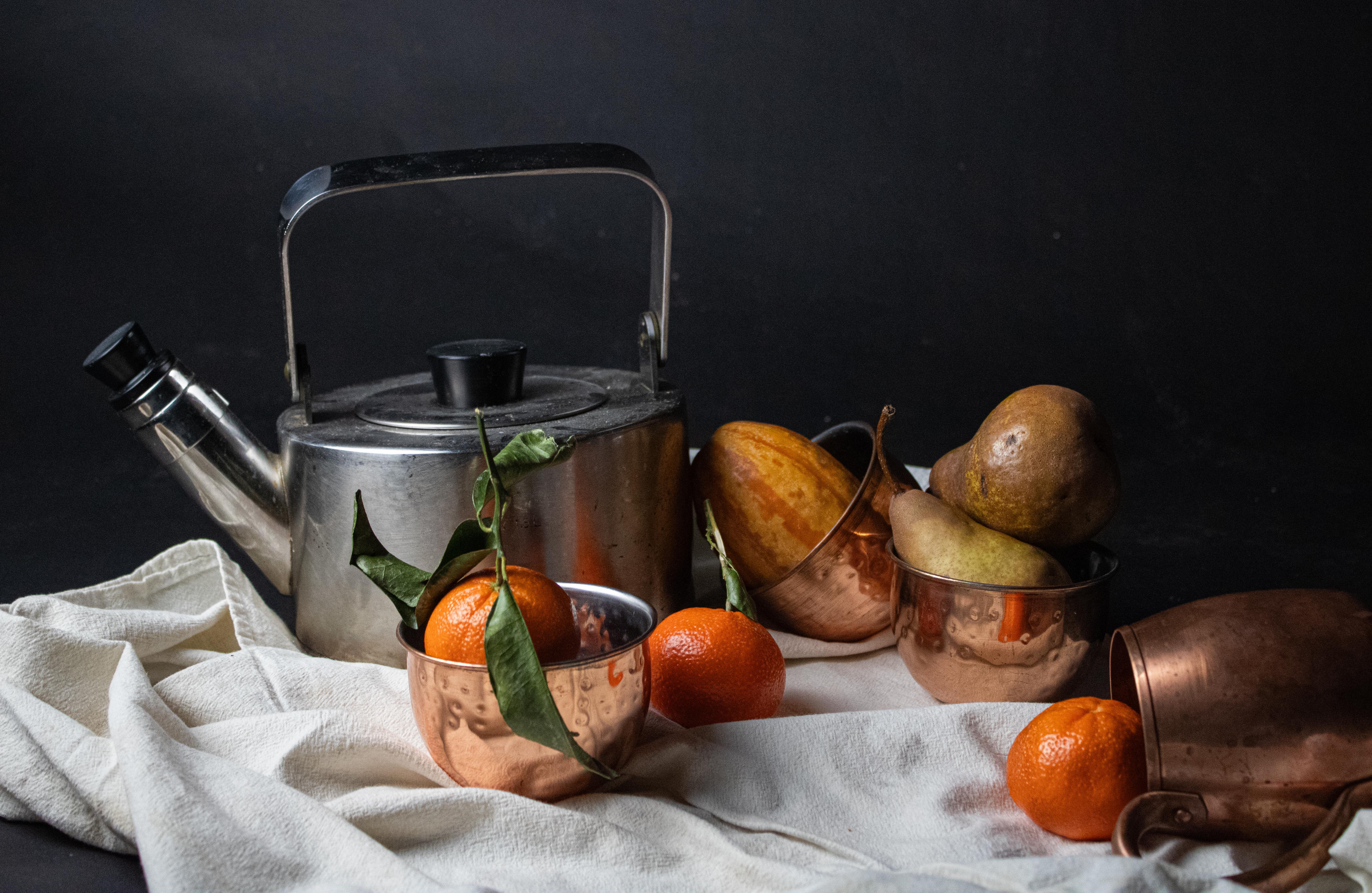

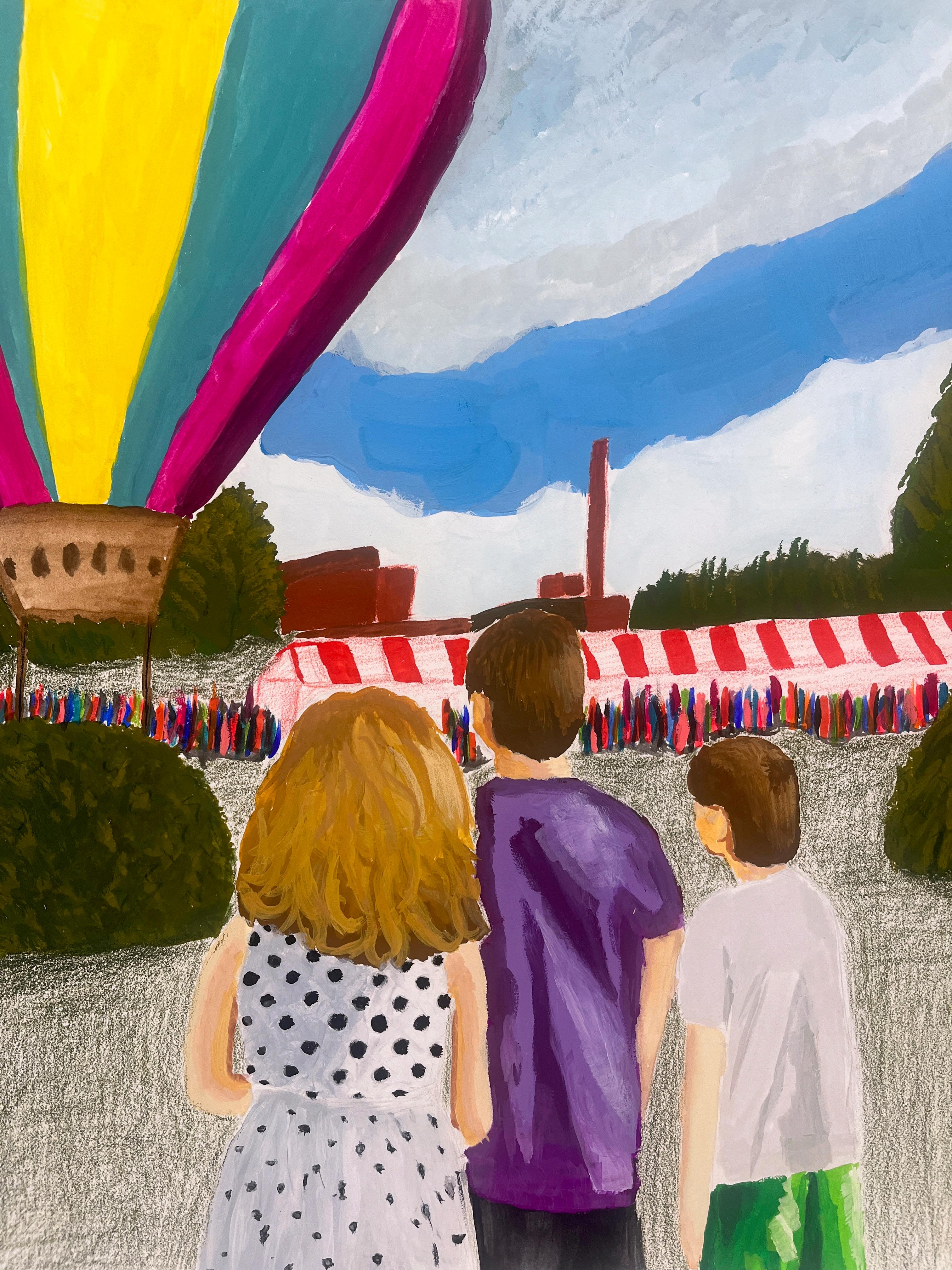
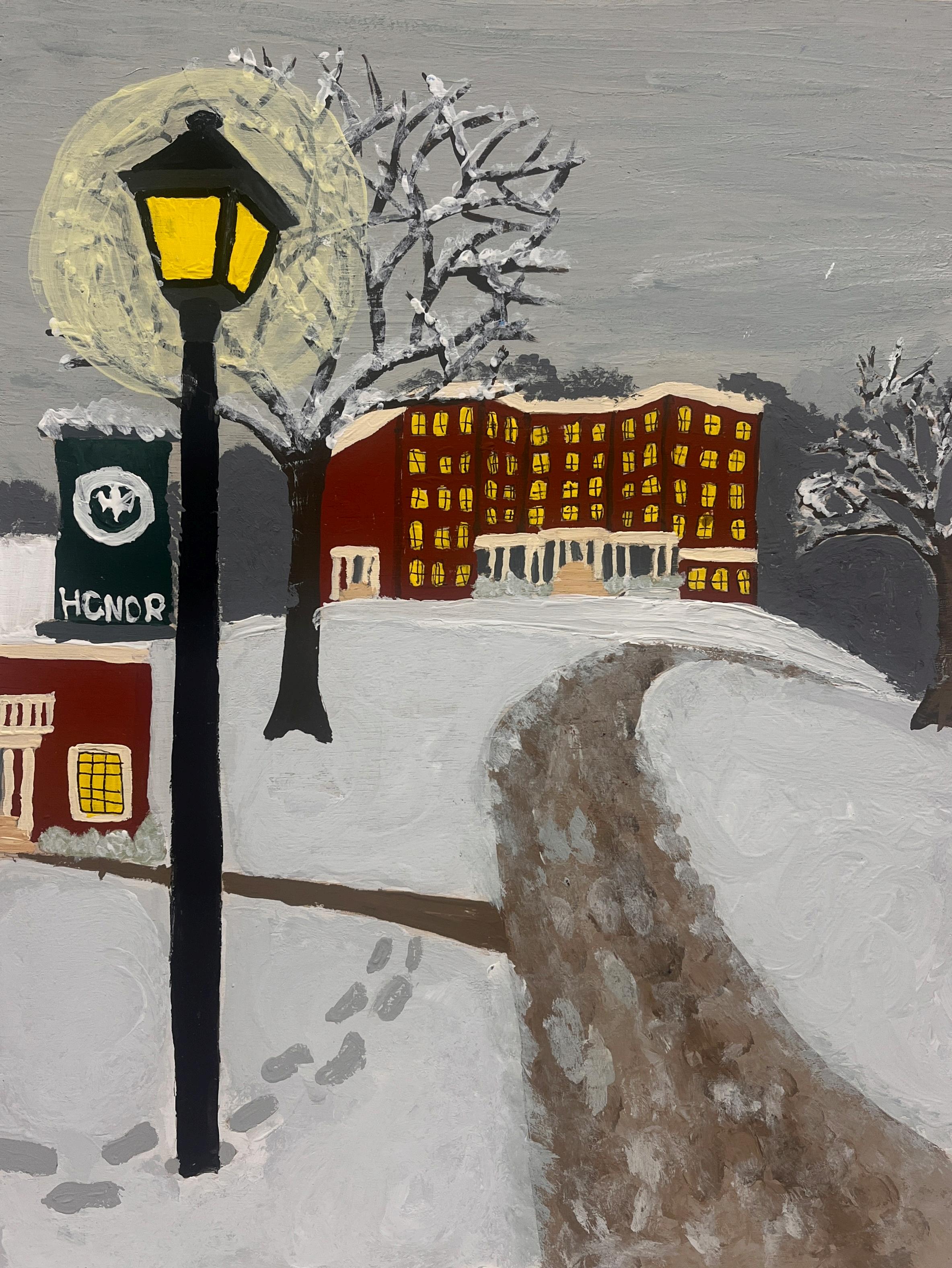
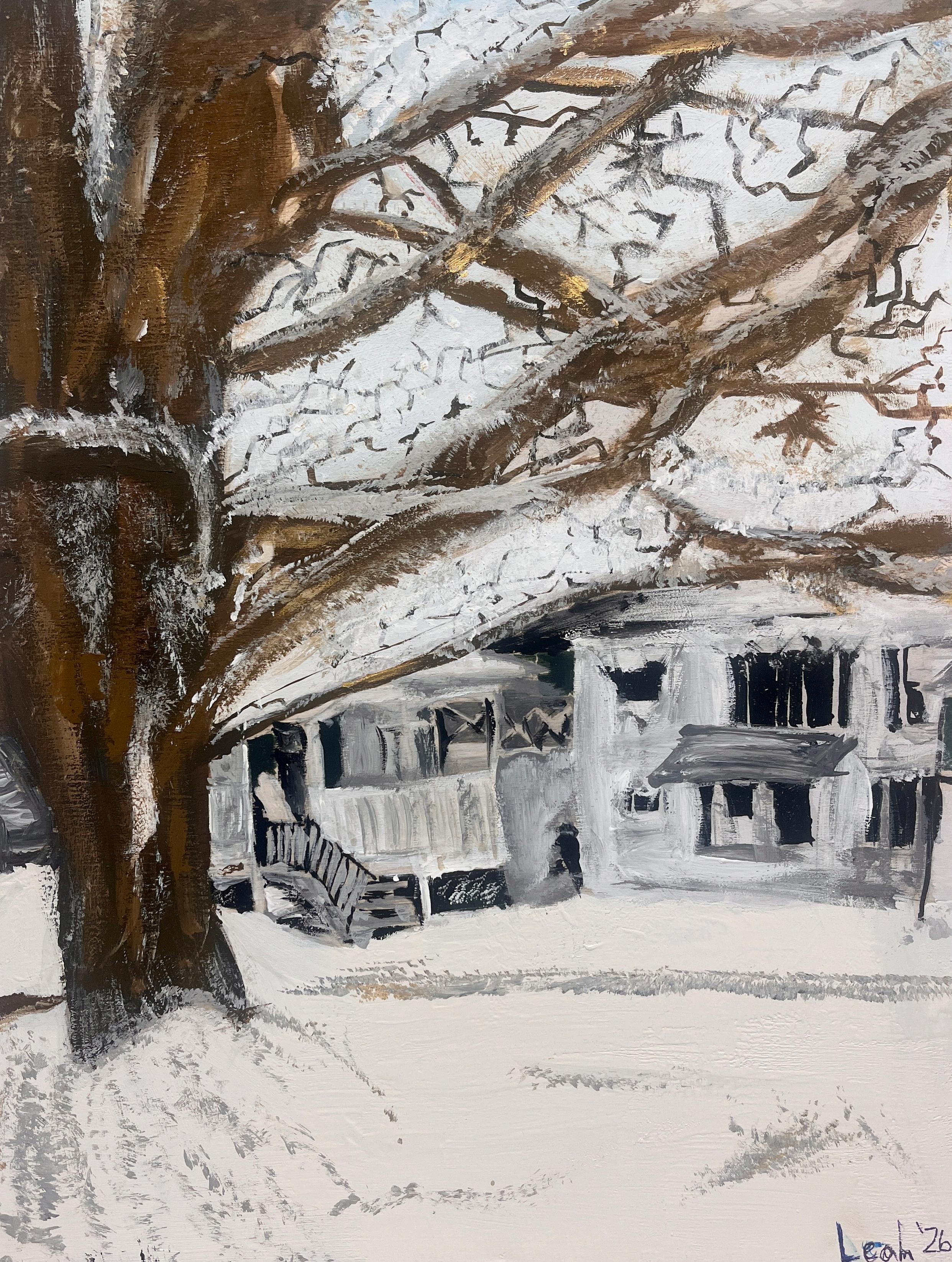

By Sage Joyce ’27
People often think men are stronger, faster, or more exciting to watch, which means women athletes don’t get the credit they deserve. But over the years, things have started to change. More people are paying attention, and women are showing up to show how powerful and talented they are. There has been a stigma around women's sports that is now being torn down practice by practice, game by game, season by season. As the years progress, so have the WNBA, PWHL, and NCAA leagues. We've seen it all, starting with the record-breaking attendance at NCAA women’s basketball games, the expanding coverage of the WNBA, and the global success of women’s soccer. Women athletes finally get a chance to make a name for themselves in college, which leads them to the pro leagues.


A sport that is very valuable to the Hebron community is Women’s Hockey. Women’s Hockey is another sport that has seen an upward change in population, as the PWHL has been created. The Professional Women’s Hockey League started nearly two years ago, and it is continuously growing. Every hockey girl dreams of going pro, and that dream can finally be turned into reality for these women. As the PWHL grows, so does the Hebron Women’s Hockey Program.
The Hebron Women's Hockey Program was broken down over COVID, and saw a rough start to the rebuilding process in recent years. The hockey girls that Hebron had after the COVID years did not have many options when it came to playing the sport they loved. They still practiced every day, but with the coed junior varsity team. This caused many injuries throughout the team and limited their athletic abilities, leading them to move to other sports.
In the 2024-2025 season, the Hebron women's hockey team has improved tremendously. Going from the 2023 season, where Hebron only had eleven players, to a full, healthy roster in the 2024 season. Coach Greg Dumais stepped up and took the role of the Girls' Varsity Coach, even though he knew there was not much to work with. He recruited a total of sixteen girls with the very short time he had before the hockey season started. Having this full and healthy roster, the girl's team was ready to take on the season, coming off with three wins in the first four games. They carried this positive energy into the rest of the season, ending with a great season.
As women's sports continue to expand and grow tremendously, so has the Hebron Women's Hockey Team. As we look into the future of women's sports, the goal is to simply be appreciated, and not treated differently because of gender. Achieving gender equality is something that every woman athlete hopes she can do throughout her career. Here at Hebron, through our expansion in our women's athletics programs, we strive every day to achieve gender equality throughout our community. As the Hebron Women's Hockey Program grows, so does the number of people who can do good things throughout our community.

By Perrin Gill ’28
Twenty-five years is longer than I've been alive. Twenty-five years adds up to 219,150 hours. That’s also equal to 788,940,000 seconds —I don’t even know how to say that out loud. To put it into perspective, if you aged a bottle of wine for twenty-five years, you could sell it for $10,000. Just 200 years ago, twenty-five years was considered a full lifespan. The point is: twenty-five years is a long, long time.
Mr. Brouwer is an upstanding citizen of Hebron Academy, along with Mr. Scammon, Cathy, and others. These fine individuals have been hardworking samaritans, serving Hebron Academy with tireless dedication and pride in their respective fields for twenty-five years. These outstanding individuals who have dedicated themselves to our school are only a few of the hundreds of people to reach this milestone.
My initial thought was to reinstate the framed photos of faculty members who had served for twenty-five years in a section dedicated to honoring their contributions.After a brief meeting with Mr. Phillips though, he enlightened me about a broader issue—while faculty members have traditionally been recognized, maintenance staff and other support staff have not received the same acknowledgment. This has led to some controversy surrounding the tradition. In that same meeting, he also mentioned that the faculty had held a celebration for Mr. Scammon and Mr. Brower in recognition of their twenty-five years of service two years ago. While this is wonderful, I couldn’t help but wonder if there was a way to establish a more permanent commemoration.


Why should we not honor the people that gave twenty-five years of their life to our school just because some people fell through the cracks? Why not put in the efforts to fill those cracks, to right our wrongs? Why don't we start now and frame Mr. Scammon alongside Mr. Brower?

Together, Mr. Phillips and I brainstormed an alternative idea: creating a "Thank You" or "Commemorations" page on the main homepage of Hebron Academy’s website. He informed me that Ms. Dougherty was in the process of redesigning the site and suggested I reach out to her. This will be the next step in ensuring all hard-working members of Hebron Academy—faculty, maintenance staff, and support staff—receive the recognition they deserve after twenty-five years of service. It's worth mentioning that I intend to look through archives as well to attempt to find all hard-working members of our community since 1804.
I feel strongly about honoring this milestone because twenty-five years is an extraordinary amount of time. Many people don’t fully grasp just how significant that period is—it’s over a third of the average global life expectancy. Another reason this matters to me is because of something Ms. Waterman shared with me. When she first considered joining Hebron Academy, she noticed the twenty-five-year service photos and thought, “What an amazing place this must be if someone would want to work here for twenty-five years.” And she’s right.
Hebron Academy is an incredible community, and I look forward to uncovering and celebrating all the individuals who have devoted twenty-five years to shaping this school into what it is today.

By Conor McCarthy ’27
Imagine leaving almost everything you have known behind to attend a boarding school you barely know anything about. In all honesty, this is a situation that many Hebron Academy students have been through. In most of those instances, the school is a lot further away from their home than four hours, and a lot of the time, there is a whole different language being spoken. Still, the boarding experience was a big change for me, even though I had the comfort of my home just a short drive away. While the switch to living away from home was unsettling at first, it has ended up being a great experience that has impacted my life significantly, taught me a multitude of lessons, and has led to countless memories made throughout the year.

Living in a dorm for the first time has impacted many different parts of my life. I quickly realized that I needed to be more responsible, as my parents were no longer able to help me with daily tasks or even simple things like waking up to my alarm in the morning. There is also the aspect of making new friends. I was not used to this as I had been close with the same people for over ten years before coming here. Living in a dorm also makes it easier to hang out with friends, as they are all your neighbors. These different pieces of life are important to me and are probably the biggest things that have changed since arriving at Hebron.
Being at Hebron has taught me to always appreciate and take advantage of new opportunities. I was very indecisive when choosing to go to boarding school. I knew that it was an incredible opportunity and that I should not take it for granted, but I felt so comfortable where I was that I was not sure if it was the right move. Looking back, I am glad that the decision to attend boarding school was made, and I have learned to always pursue every opportunity that comes my way.
There are some downsides to living in a dormitory, such as a lack of personal space, no home-cooked meals, and seeing too much of Jeremy Lavoie. But generally speaking, the independence and the amount of time spent with my friends here is unmatched. I would recommend trying boarding to most people I know, whether it is in high school or college. The good most definitely outweighs the bad, and I would not trade it for regular schooling in any scenario.
Throughout the year, there have been a lot of memorable moments, but a few in particular stick out. Playing guitar by the fire after homecoming with tens of others, all the away football games and the sixhour bus trips to get there, and especially the movie nights that take place on the weekends in my room with some of my closest friends here. There are, of course, plenty more memories that I have made here, and I know that they will continue to stack up in the future.
Though boarding school was a major change and living in a dorm is different than anything I have ever known, I would not ask to have it any other way. My first year as a boarding student has been great, and I am excited to see what the future holds.

By Mr. Moylan
This is my first year at Hebron, and also my first year working at a boarding school. I came in knowing it would be hard work and long hours — and that has absolutely been the case. What I couldn’t fully anticipate, however, was just how rewarding it would be. In the midst of the busy days and late nights, there are unique opportunities to connect with students in meaningful ways that were impossible in a public school setting. Living in the dorm is a big part of that.
Living in the dorm has been one of the biggest changes in my professional life. Coming from public schools, I was used to seeing students during the school day, with very clear boundaries between work and home. Here, those lines blur — and while that’s challenging at times, it also opens up new and meaningful ways to build relationships.
There’s something powerful about being present in students’ lives outside of the classroom — seeing them at their best, their most tired, their silliest, and most honest. Whether it’s long conversations during study hall, helping someone unlock their door (again), or talking about the latest Barcelona game, dorm life offers windows into who students really are, beyond academics or athletics.
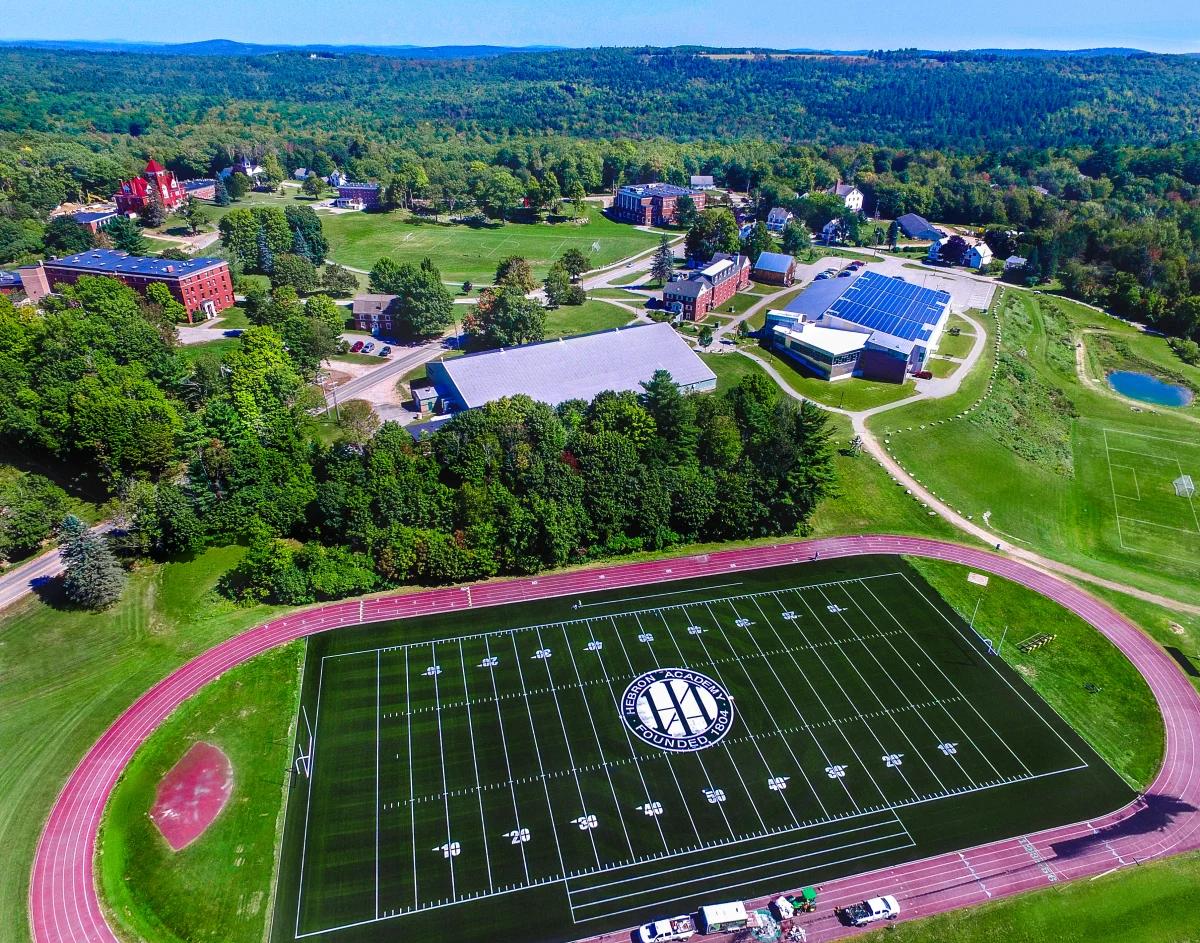

That said, living in the dorm has taught me the importance of balance. I’ve had to learn how to hold boundaries — how to say "not right now" and protect my own time and energy — while still being available and approachable. It’s a constant dance between boundaries and connection, and I’m still learning the steps.
There are clear positives and negatives to dorm life. On the plus side, I get to connect with students in ways that simply aren’t possible in other settings. There’s a kind of mentorship and trust that builds when you live under the same roof. On the flip side, it’s not always peaceful. As much as I enjoy the students, it’s not exactly relaxing when a group of teenagers is rampaging outside your door when you’re trying to unwind after a long week. Privacy becomes a luxury, and quiet can be hard to come by.
Still, the moments that stay with me aren’t the loud or chaotic ones. One of my favorite memories from this year is unexpectedly reconnecting with “Linger” by The Cranberries, thanks to Jeremy. Nearly every morning in the fall, the familiar overtures and haunting voice of Dolores O'Riordan floated out from the bathroom and into my apartment. It always made me smile. It wasn’t a song I expected to hear coming from a student’s speaker, and when I realized it was Jeremy playing it, it instantly became a point of connection. He’s even promised we’ll sing it at karaoke before he graduates — something I’m definitely holding him to.

By Evan Miller ’25
Over winter break, I had the wonderful opportunity to travel with my roommate, Krum Tsvetkov, to his home country of Bulgaria. We started off by flying from Boston to Munich, which was a long seven and a half hours with lots of sleeping and movies watched. Once we landed in Munich, we had six hours to kill during our layover. Krum and I got a bite to eat with a pretzel and bratwurst, and a drink. Afterwards, we played some foosball and slept. Then it was off again on our two-hour flight to Sofia. This flight was different as Krum taught me the ins and outs of what to do and not do in Bulgaria.
When we landed, we disembarked the plane and headed to baggage claim, and, boy, was that an experience. Baggage claim was like flies on poop, as people swarmed the carousel waiting for their bags. As bags started rolling out, mine came out semi-early, and then the wait was on for Krum’s bag. We were waiting, and waiting, and waiting for his bag. Krum was like a hawk watching the people around us and his surroundings talking about how I needed to protect my belongings, even suggesting I wear my backpack on my chest instead of my back, as Bulgaria is known for pickpockets who break their fingers at young ages so their hands are more flexible to reach in places without the victims knowing. With an hour gone by, we finally secured Krum’s bag and headed out of the airport to meet his family and friends.



Walking out of the doors, we were greeted by about ten people: Krum’s parents, grandparents, girlfriend, and friends. We packed into the car and headed to his house. Driving from the airport was an amazing experience as we drove through the city and got to look at the buildings while listening to Bulgarian music. After we got home and unpacked, we popped some sparkling juice to celebrate Krum coming home and started to feast on the homemade Bulgarian food that Krum’s mother had prepared. It was so nice to try homemade Bulgarian food and see what it was like.
After that, we both slept for a long time. Over the next week, we did too much to write about right now, so I’ll give a quick rundown. We made tons of stops so Krum could see friends and family that he had not seen since summer. We walked around the city seeing a bunch of sights, including the Patriarchal Cathedral St. Alexander Nevsky, which is a beautiful cathedral with a giant gold dome. We also went to a Christmas Festival called “Christmas in New York,” at a movie set that looked and felt just like NYC. After all this, we finally got to celebrate Christmas with Krum’s family. In the morning, we opened presents and had a nice breakfast. Throughout the day, we visited Krum’s grandparents and other family members to celebrate and eat lunch and dinner.
After getting home, we packed to leave for a hotel in the mountains to celebrate New Year's. We stayed in a beautiful hotel that had everything you could imagine. Krum and I spent most of our time in the pool and sauna while not doing family things throughout the day. Eventually, when it came time for New Year’s, we had a wonderful dinner at the hotel’s restaurant, where we watched Bulgarian dances and listened to Bulgarian music. Once the clock hit midnight, we went outside with the view of the mountains and popped sparkling juice and watched the fireworks. Being seven hours ahead, I had to call my family to wish them a Happy New Year.
The next day, we headed back towards Sofia, where we stopped at the Rila Monastery, where we toured the church and where the monks used to live. Afterwards we headed back to Sofia and spent more time together with Krum’s family, as we would be heading back to the U.S. soon. Our final meal in Bulgaria was a huge feast with tons of meats and cheeses, with the main dish being a whole roasted pig. The pig was huge and took up the whole table.
As we sat and ate, everyone was asking how much I loved Bulgaria, and I assured them that I would be back. With that, we packed the car early the next morning and headed for the airport, which meant, sadly, the trip was over. This trip was one of, if not the greatest, experience of my life. I learned so much from this trip, and it is an experience that I will never forget.

By Mr. Smart
I have to confess that I have an utterly unromantic view of life. I roll my eyes at "everything happens for a reason” and scoff at “Oh, my fated destiny!” “Love at first sight” is a delusion; “in love” is a social construct we use to justify irrational behavior and poor judgment. As my 12th graders sometimes say, “Mr. Smart, you hate love.”
But I don’t hate love. I just don’t believe in romance. Life is chaos, full stop. And that’s why my journey to Hebron Academy so much annoys me.
In June of 2014, I was visiting my family for the first time in about ten years. It had been a decade of decadence marked by highest highs and lowest lows and a million unpredictable things that tore me apart and stripped me down to my most elemental self, devoid of faith and dream and ideal, devolved to dust and clay from which I spoke a new man into existence as Camus’s creation: Experiential quantity, to everything, ‘yes’ through every new door. Regrets? What for?
Years earlier, when I packed my car for Seaside, Oregon, I swore that I would never return to Maine. I had meant it, too. Maine was too small for me, too provincial. Death was too close, memories too weighted, winters too long, and trees too short. I wanted giant Douglas Firs. Sunsets and rain. The Cascades and pinot noir. I wanted road trips and the metaphorical west. And I got it all, absolutely all of it and some other things, too. Like a degree in philosophy and paid summer trips to Japan and South Korea and a broken heart and recurring stints of homelessness and crippling seasonal depression from all the rain.
But then Oregon cut me loose and sent me onward to the world—years in South Korea and Australia, months in Europe and Southeast Asia, weeks and weekends in Tokyo and Sapporo. Life was absurd, and the earth spun circles, and I, the intellectual child of Camus, rode bikes across countries and took boats with just-met strangers to uninhabited Thai islands. I ate live octopuses and mealworms, raw cow liver and pig heart, and boiled dog. I dined with models and drank coffee with celebrities and gave free haircuts to the shoeless and toothless and destitute. I did good, I did neutral, and I did bad. Unspeakable things are kept secret until death. I got engaged; I got tattoos; I got lost a little; and I swore I would never return.
But the earth spun round and time moved on, and one day, Grandfather was dying.
After a quick jaunt through Sweden and Denmark, I deplaned in Portland, Maine, where Mother and Father waited, Dad smiling, Mom wet-eyed, yet I impassive, a decade disappeared, and so much changed. I spent a few days with them in South Paris before we headed north together to see my grandfather.
It was good to be with family again after so many years away, to eat meals together and sit outside in the evening watching the sun fall into the forest behind the house. While visiting, I went with my father one day to buy lumber at Home Depot. As we passed Hebron Academy, I admired the campus, the green grass of the bowl, and the red brick buildings. I asked what the place was, and my dad told me it was a boarding school, and on we went to Auburn. On our way back, I again admired the campus and even turned to look back as we passed it by. “That would be a great place for you to work,” my dad said. “Yeah, right,” I responded. “I’m never moving back to Maine.”
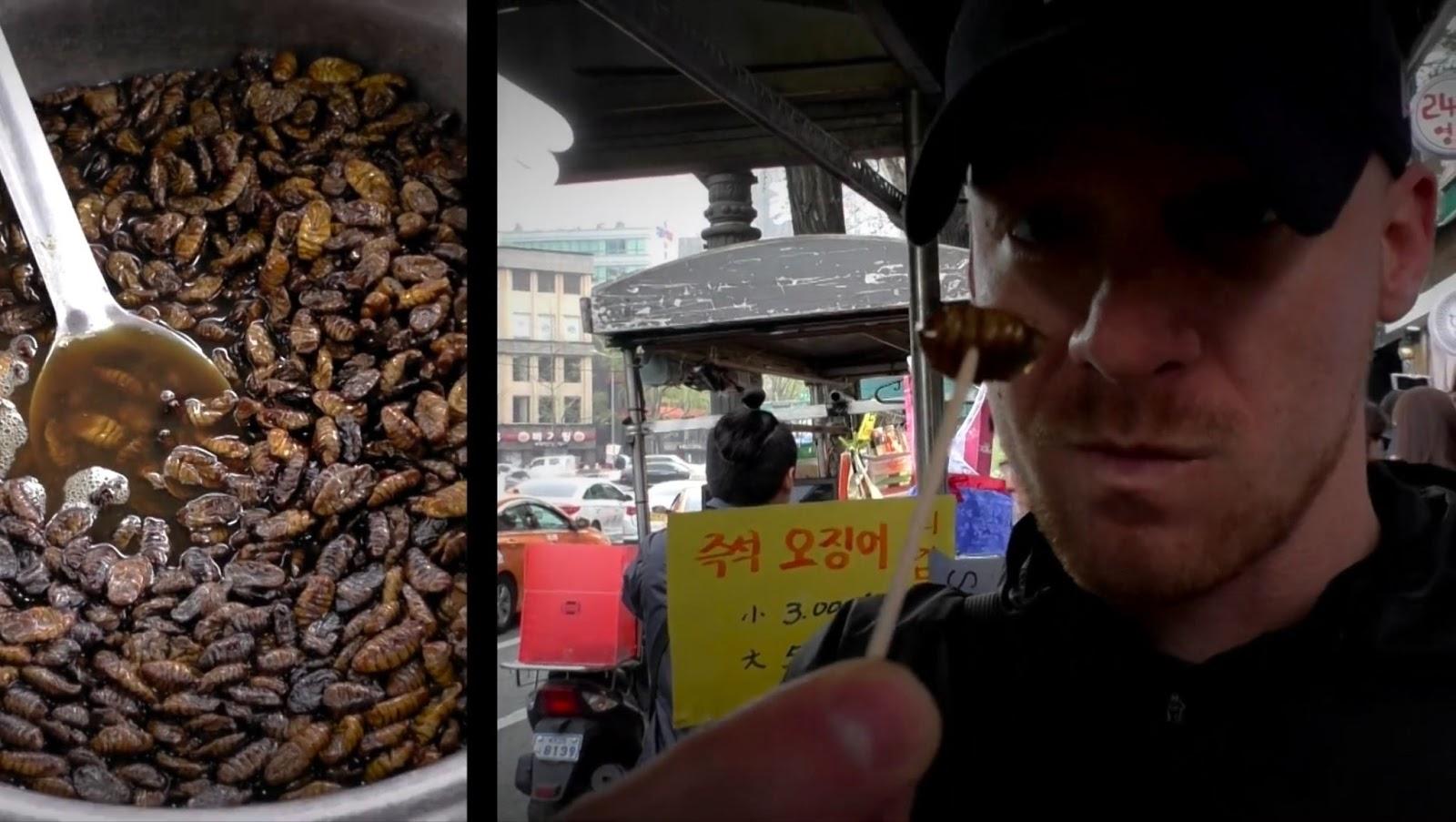
A week later, after a few days visiting my grandfather, an unseen door swung open and I stepped through it into the chaos and humidity of Hanoi, Vietnam. The world turned more circles to pass the time, and nine months later I wasn’t engaged anymore, my grandfather was several months dead, and I was standing alone at the prow of a ship in Halong Bay while the sky turned purple and pink and I was terribly sad and no longer impressed by my private elevator at home and kind of just generally tired. I thought maybe it was time for a change, time to just actually be somewhere and build something and just kind of belong in a place and be a part of it. So I did what anyone in my shoes would do: I gave away everything I owned except what could fit in a backpack, laundered what money I could, left a shoebox full of the rest and a thank you note for my housekeeper to find, and flew home.

I spent May in Maine and drove past Hebron Academy on several occasions. My mother said it would be a great place for me. My father said I’d fit in perfectly. I never responded to either of them. I just looked out the window at the
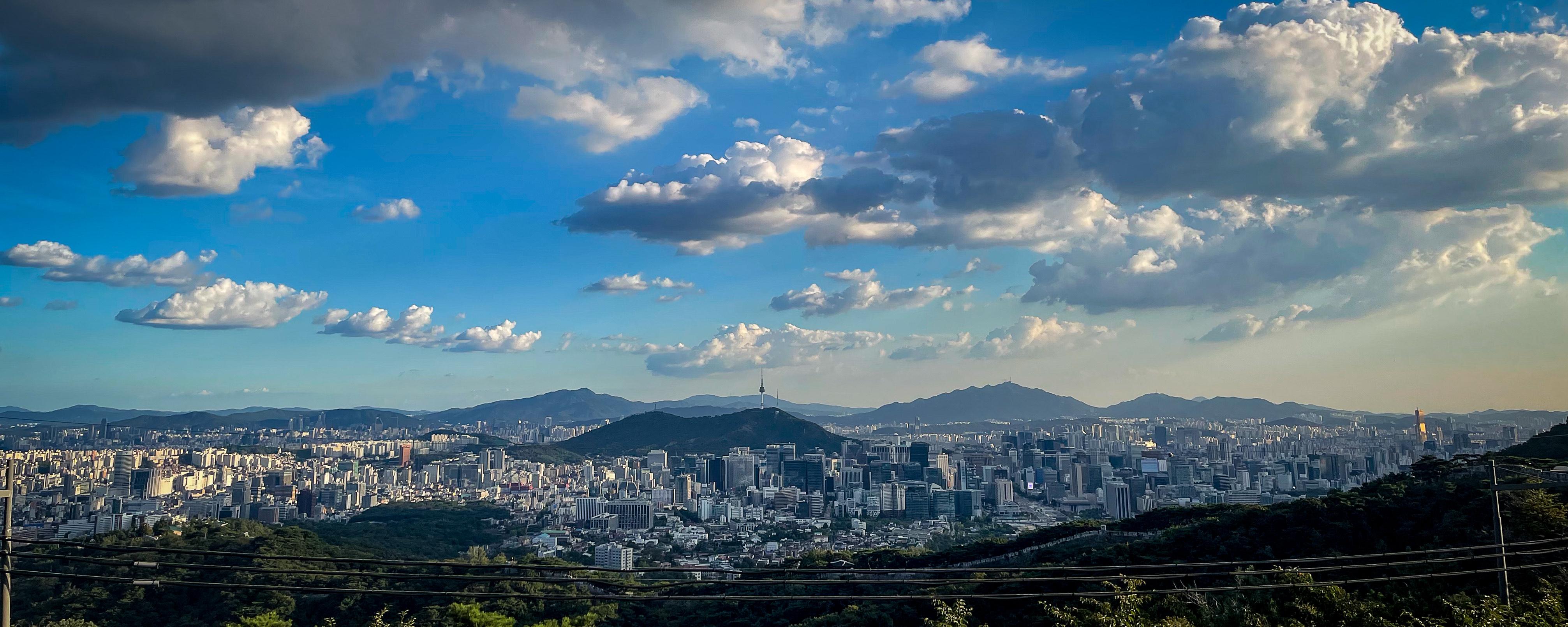
South Korea to pursue new things with new intentions. I was going to belong. I was going to connect. I was going to be intentional and integral. I was going to create meaning out of life and be inspired and aspirational and all the other good things a man can be. I started racing bicycles and making businesses and writing books and taking pictures and getting new tattoos and organizing community events, and I ended up an accidental influencer with tens of thousands of social media followers and many hundreds of social acquaintances and roughly two friends.
After about four years, I was kind of a little bit miserable because, despite my intentions, life was mostly pointless, and I was a little bit despairing at times because everything was vain and empty. It was then I first started to entertain the idea of returning to Maine. But I wondered what I’d possibly do if I did, and Hebron Academy briefly flashed to mind but I brushed off the idea of returning almost entirely, doubled down on my current efforts and told myself I was on track for my dreams and that my growing despair was just a weakness of will or deficiency of follow through, and stuck around in Seoul for another four years.

During that time, the vanity of it all only increased, and the despair became existential. Thoughts of Maine grew more frequent, and then one day I was on a train in morning rush hour when my father called to say my mother was, at that moment, in an ambulance to the hospital with an apparent heart attack and that he’d be in touch. I hung up the phone, thought for a moment, hesitated for half another, and then did what anyone would do: wrote a series of emails resigning from every professional commitment I had, deleted all my social media accounts, and over the next three weeks gave away everything I owned except for my race bike and what could fit in a backpack, and then gave Seoul, South Korea, a city in which I spent more than twelve years of life, a silent, empty, Irish goodbye. And on my flight to Boston, I wondered about Hebron Academy.
That was October of 2022. Mom came away from the hospital okay. Dad nearly died two weeks after I returned, but he’s fine now, too. I spent ten months working remotely and riding my bike all over the country, and from time to time, I checked the Hebron Academy website for job openings, vaguely hopeful but never expectant. Later on, I started guiding bike tours in Acadia National Park and started working at Oxford Hills Comprehensive High School. On more than one occasion, my parents would mention that Hebron Academy would be a great place for me. Then June of 2024 came around and I got fired from the bike touring company for voicing honest opinions in an untactful way about new corporate policies, and the Oxford Hills School District budget failed, so my prospective job there was eliminated. I thought immediately of Hebron Academy, checked the website, and lamented that there were no openings.
A couple of weeks later, in July, I went out for a bike ride, and on my way home, I saw a cyclist friend, so I turned around and joined him for his ride. At one point along the way, he turned to me and said that Hebron Academy had just posted a job for an English teacher. That night, hopeful but not expectant, I applied for the position. And now I walk daily through the red brick buildings and the green grass of the bowl. It almost seems like destiny, almost like it was meant to be. It almost makes me believe in romance, even.

By Evie Willer ’26
Joining Seacoast United for club soccer this past winter and continuing into spring has been an incredible experience for me. Playing on a showcase team with players a year older than me has pushed me to elevate my game and develop my skills in ways I wouldn't be able to on my own. Competing alongside more experienced athletes has not only challenged me physically, but has also fostered a sense of resilience and determination that I carry both on and off the field.
The recent five-weekend travel tournaments were a rollercoaster of experiences. Each tournament brought its own set of challenges and triumphs. Some matches were tough, and we faced teams that tested our limits, but those moments taught me valuable lessons about teamwork, strategy, and perseverance. I learned to adapt quickly and stay focused, even when the odds were against us. In our last game, we had no substitutes and were playing an undefeated team, but in using well practiced strategies, we were able to tie the game and overall play one of our best games as a team yet. Celebrating our victories, no matter how small, helped build camaraderie within the team, and the support we showed each other made all the difference for our victories.
Since the start of the club season, I have noticed significant growth as both a person and an athlete. I've become more disciplined in my training, more confident in my abilities, and more aware of the importance of collaboration in team sports. The experiences I've had with Seacoast United have not only improved my soccer skills but have also shaped my character and strengthened friendships that I would have never made without the team. This experience taught me the value of hard work, dedication, and the joy of being part of a team. I'm excited to see where this journey takes me next!

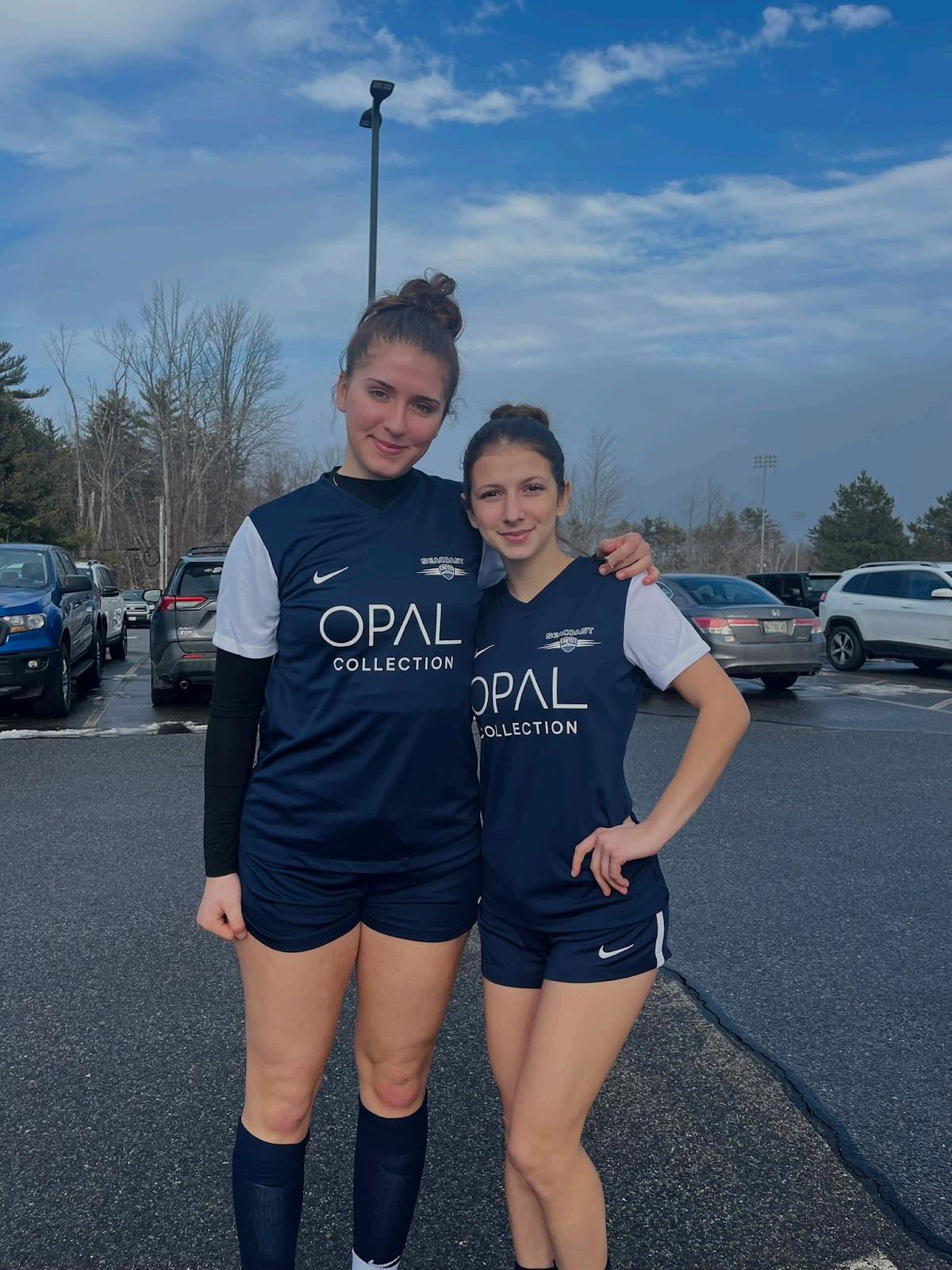
By Liam Snodgress ’26
The wind whipped past Lark’s face as he ran. Dust flew behind him, kicked up by his pounding legs, showering the earth behind him in bits of rock. His scoped goggles chimed as his objective came into view, setting his heart aflutter.
“There it is!” He exclaimed, jumping into the air, flailing his arms.
The beast looked up in his direction, startled by his exuberance.

“Oh shi-,” Lark started before remembering coms, “oooot,” he finished with a flourish.
“I heard that,” the disgruntled voice of his little sister snapped, coming back at him through coms.
“Now stop goofing around, we need this job done well.”
“Yeah, yeah,” Lark mumbled back.
Staring out at the wide open terrain of Palms Valley, Lark breathed deep, centering himself before the conclusion of the hunt. Quickly, he ran a diagnostic on his bionic lower half, flipped a very important switch, and boosted off after the job his sister had said would only take two weeks, but seemed to be taking three months; she blamed his incompetence.
Adult crawns were notoriously hard to come by, and their buyer wanted the best of the best; he’d insisted on this specific creature after looking through a roster of the continent's finest marked specimens. After a day or something of planning, his sister woke him up and told him it was time to go, so he did. Lark got himself fitted out with everything he’d needed for the trip including but not limited to a tranq gun that shot bullets large enough to sedate a small military outfit of about five hundred men, his surveillance gear, mechanical repair tools, what rations he needed for a supposedly two week trip (Lark was still bitter about that), a canteen, and a tablet that let him read, write, and draw. All things said, the job wasn’t as bad as some he’d done before.
Now the crawn was here, running right below him, and he just had to hit one lousy shot from this big, ahem, gun he was carrying.
“Stabilizing lower body, loading barrel, loaded … scoped.”
“Fire,” the voice over the coms responded.

Dink!
“Ohhh, that’s not good!”
“What is it, talk to me,” his sister replied in her ever-calm voice.
“Well, first off, that voice of yours always freaks me out, and second, the crawn appears to have not shed its dry season plating.”
“First, sorry you find my voice freaky, and second, I DON’T CARE, stab it with the tranq if you have to. We need to finish this job,” She raised her voice on the I don’t care bit, and that sobered Lark up a bit.

“Stab it with the tranq, got it.”
Lark dropped the gun, shed any extra weight, including his very nice repairing tools, and took off at a charge. From his back pocket, Lark slipped out one of the two remaining darts, always good to have three, palming it and flipping it into a stabbing position. With his free hand, Lark fell to all threes picking up speed to the point his headgear chimed again, a new record of fifty-four miles per hour, whatever miles were. Coming up to the edge of the cliff he was running on, Lark pounced, splaying his arms to add wind resistance and plummeted to the valley bottom, aiming right for the back of the crawn.
At about twenty paces above the crawn, Lark tucked in everything, creating a point under his abdomen where his feet and hands met. Lark impacted the back of the crawn with a force large enough to send a small shockwave into the air, rustling the branches of scattered trees and sending ripples across the valley's growing river.
“Contact, ready for administration.”
“Administer away,” chirped his sister.
Lark scanned the back of the crawn, its dry season plates were barely hanging on, coming apart at every connection to the softer under shell, the tranq should have pierced. He found an opening in the zone between the crawn’s neck and left shoulder. He advanced on it using the leverage of the creature's plates to pull himself along as it bucked along the valley floor, turning up underbrush that was just beginning to flower. As Lark pulled himself along, pieces of plating fell away, revealing underhide, but all of it was still too thick for the needle to pierce.
“A few more paces, come onnnn,” Lark stretched out on the last ‘onnnn’.
Shick.
“Tranq administered,” Lark panted over the coms as the crawn abruptly stopped running, collapsed into the dirt, and skidded almost thirty paces.
“Good work, contacting the employer,” a brief pause as she worked out the details of the transaction, “he should be sending a convoy to pick up the crawn, we got about half pay for delays, but it should still be enough to see us through the next job. See you back home?”
“See you back home, Olive. Good work.”
Rotors hummed overhead, the crawn was picked up, Lark scaled the valley wall, wishing he hadn’t left everything at the top. Then he was on his way home with a trail of dust behind him and the wind whistling in his ears, he was not going to miss tonight's celebratory meatballs.

By Casidhe Madsen ’26
Religion has been a very large part of our collective human history. It gave people a way to explain the world, find meaning and even come together as a community. But in today's world, where science and technology have come a long way, religion doesn't seem as necessary as it used to be. Some people still think religion is the most important thing in life, but is it honestly? Religion is overrated because there are better ways to explain the world, solve problems, and bring people together.
In the past, religion helped people understand and find meaning in the things they didn't have the answers for, like where we came from or why bad things happen. It also gave people rules to live by and helped communities stay together; it gave people more structure. But now, we have science to explain things like evolution, the universe, and even why we act the way we do.
Science has given us answers to the questions that religion used to try to explain, like how the earth was formed and why we as humans get sick. We’ve also created laws that focus on treating everyone equally, like basic human rights and democracy. These ideas aren't necessarily tied to one specific religion, so they work for everyone, no matter what they believe. Instead of using one God to answer all the hard questions humans couldn't find the answers for, we turned to science and technology and created universal laws that apply to everyone no matter what you believe.
While religion can bring people together, it can also cause a lot of problems. Wars, discrimination, and arguments abouts right and wrong can often happen because of religious differences. For example, some people use religion to justify hate against others who don't share their same belief system or even the same skin color. For example in 2023, multiple states introduced or passed laws restricting drag performances, banning genderaffirming care for minors, and targeting people who identify as LGBTQ+ in public spaces. These laws or acts were often supported and justified by religious leaders and groups. Instead of bringing us together as one community, religion can often unfortunately divide us.
Even though religion has its problems and flaws, many people still find comfort in it. It helps them feel connected to something bigger than themselves and can give them hope during tough times. Religion is also a big part of many cultures, and for some people, it's tied to who they are and who their family is. But there are other ways to find meaning and community that don't involve religion! Just by simply joining a club, volunteering, or trying a new hobby, or finding people who share common interests with you. Focus on finding good friendships, exploring something new, or just figuring out what makes you happy and living by your own values.



By Quin Doyle ’26
Two eyes opened like flowers to behold the newborn daylight. Starved, they were, of their food already. In a vigorous leap without legs, the body jumped, and the bright sun illuminated the trees and held the calm birdsong in its warm breast. The body stretched in the kind rays, but the mouth was frozen stiff, no longer able to chant its daily hymn to the natural beauty beyond the window. The stickers on the chifferobe prompted a twitch of a grin in the mouth, with their weirdness and history captivating the head. As the legs shifted the body out of bed, the baby blue blanket, the one that the child had nestled into since they were a babe, returned the favor that day, with a tight wrap around the shoulders almost in consolation.
Sliding onto the little smooth pale feet came slippers lined in soft plush that banished the pain of stubbed toes in times of need. The walls gave a wide berth to the child as they practiced their rituals, and seemed to make faces of pity in the creases of the rough plaster. Friendly beings of the wood, stalled in their movement, lay pasted to the walls, playmates for the head in its peaceful, deep dreaming. On a regular day, the great many smiles held welcome and the attached limbs almost danced in the light filtering through the tree branches outside, but on that morn, there was an anxiety in the stripes of their faces that brushed a blackness over the stickered murals.



The buff colored carpet gave way to crisply cool finished wood that came in the marvelous orange-brown which dominated the house’s floors, and the child beheld the hypnotic patterns of the grains for a while, melting into the hot hue of the boards. The small unused switch next to those for the lights flickered on and off with its blood red glare as it always did, but this time more menacingly.
The swirls and shapes in the bright foam mats on the floor across the hall called attention to the toys beyond, trucks and trains and Legos and Lincoln logs. As the child took a step forward, the hall began to grow into a passage of dark liminality. The welcoming shapes of the playsets sat on a table that came into view, the child’s prized police station, garbage hauler, and gold mine, all beckoning with their promises of imaginative enjoyment. But the creek of the soft slap of flesh on planks disturbed the scene.
“Quin. Come here.” A lecture proceeded that confirmed their sense of dread, which had built over the months. The death of faithful Bode, chieftain among beasts in the house. Gentle, smooth-haired suncolored Bode. The news came like a phantasmal force to the heart, and the spectral militant then grappled the brain. It had been just a year prior that the child had experienced their first loss, Stanley the goldfish. That day at school, they had to leave class to cry. That night the child pondered and finally allowed themself to understand that while their inanimate companions would never pass, save for by future mistreatment, the days of a living being are ever numbered.

When burdened by expectations and dark clouds surround
Black so impenetrable no light of hope found
If shadowy thoughts pelt down on you like pouring rain
Share with me now all your worries, your doubts, your pain
To emerge from this storm triumphant with victory
Alone may be tempting but its lure is trickery
Together we can clear the heavy clouds from the air
Revealing a day that is joyful, peaceful, and fair
You will see the sky clear and new flowers of hope grow
Sometimes all you need is a friend to reclaim your glow
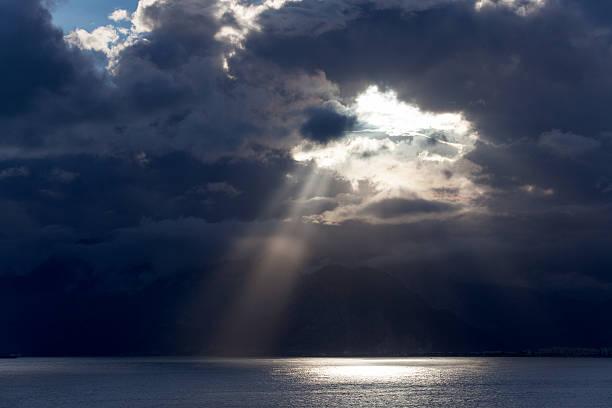
By Jeremy Lavoie ‘26
It started on a quiet afternoon. I wasn’t looking for anything special, just a snack to pass the time. But then, I saw you, sitting there, unassuming yet irresistible. The first bite was electric. Your tangy sharpness caught me off guard, but I couldn’t stop. Each bite was a revelation, the perfect balance of salty and sour, crunchy yet delicate. You made my taste buds come alive in ways they never had before.
Now you're always by my side, movie nights, road trips, or stolen moments of indulgence. It’s not just a snack; it’s love. Forever, you and me, salt and vinegar chips.


By Emily Finch ‘27
When burdened by expectations and dark clouds surround
Why do we bite at the hand that feeds us? Our mother supplies everything we could need. Our mother bears fruit as we bear her a knife, and we tip oil down her throat, poison her skies, and thin her air with black. We kill her slowly, painfully, year after year, and we do not care. We are colorblind to her red that we wear on our skin and flows through our cities. When we find her dead, we will ask what we did to deserve this. By then, we will deserve it.
What will we do when the wildfires rage in California?
The wildfires are already raging in California. They twist and blow and burn our homes in revenge. They spit white heat with fury on our graves.
What will we do when the tides rise?
The tides are already rising. They swallow our lands in one gulp, flooding our beaches and fields of food. We have cut ourselves deep in greed, and now the ocean salts our wounds for our carelessness.
What will we do when our winters are green? What will we do when our hurricanes roar? What will we do when our reefs bleach and our fish are plastic?
They are already green, roaring, white, and shiny plastic.
What will our children do when it reaches the point of no return?
That is all our children will ever know. We have already reached that point. Our mother punishes us and pleads for us to stop. Will we ever show mercy? Well? Will we?
We must choose. We must all stop as one or die knowing what we have done to our futures. Why would our mother cradle our infants after all we have done? Will we let our murder become a genocide of our own kind as well? Our mother will be devoid of all she has, and we will still take more. We will scrape the edges of our bowls and scratch her ankles, but they will no longer bleed. She is already dead due to our demands and dereliction. If we are void of even two hands, she will be unhealable. Don’t let your hands be that absent pair.

If anything, we must all replenish her. It is time to give back what we’ve so foolishly and selfishly taken. It will take us all to craft a bandage massive enough to cover the wounds we have inflicted. It will take all 8,231,613,070 of our strands and not a single fewer. It will take you to save our mother. It will take a pure miracle to revive what we have cold-bloodedly killed.

Time is our biggest obstacle, and it is almost up. Will you be the pair of hands that squeezes her final breath from her throat? Will any hands be compressing her chest and giving her life once more? The view from here looks barren and grim. We’ve constructed the graves we will lie in. They will be flooded by what used to be our ice caps. You are standing in the grave of humankind. Will that ever change? It’s a decision we must all make.

By Rebecca Wollenweber ‘27
In the early years of my grandparents' marriage, they lived a life many would dream of. Both were in their young ages, very ambitious and full of wanderlust, excited and eager to discover the world, especially parts of the world that were not easy to discover, and parts that are even harder to access today. They met while studying law, and after graduating, they decided to take on roles in the legal system— my grandfather was a judge and my grandmother a lawyer. Traveling was their joy, so they traveled far and wide, to the Middle East and Northern Africa, but the one thing they could not have in their perfect lives together was a child, which they longed for.
Many years passed, ten of them, and still no baby was on its way. Their strong hope, which never fully extinguished, started to wane. When they didn’t know what to do anymore, they decided to consult a doctor, who brought them grave news. Through an X-ray, they were able to see a shadow on my grandmother's lungs, which turned out to be a tumor. The diagnosis was a heavy stone, but because of the delicate manner of the time, it was my grandfather who learned of the diagnosis first. His decision in their early years of marriage was to protect her from the pain and harshness of reality, telling her only that she would need surgery but not to inform her about how serious it truly was.
The decision was born out of a deep love, but also a love that, by modern standards, would’ve been clumsy and far too secretive. Yet it worked out. She underwent the surgeries with a very light heart, deeply trusting in the belief that the matter was way less serious than it seemed, and she recovered. Yet, despite years passing, she remained without child.
Then, her husband was so desperate to prove to her that she was healthy and capable of becoming a great mother, he proposed a bold idea: a trip away to one of their favorite places, South America. They would travel to the Andes, exploring the highlands to take in the sights and to prove, in their own way, that even though she had all the surgeries, she was fit and strong. With them, they brought along a close friend for companionship, as their journey through the untamed, beautiful land of South America would not only be a physical but also an emotional challenge as well.
One day, as they were horseback riding through the steep, winding paths of the Andes, a disaster struck. The horse my grandmother rode grew frightened and bolted, starting to gallop uncontrollably down the mountain. The fear she was experiencing in that moment, my grandfather later recalled, wasn’t only that of a super wild animal but of close death itself. In that moment, she had come face to face with the fragile boundary between the unknown and life.
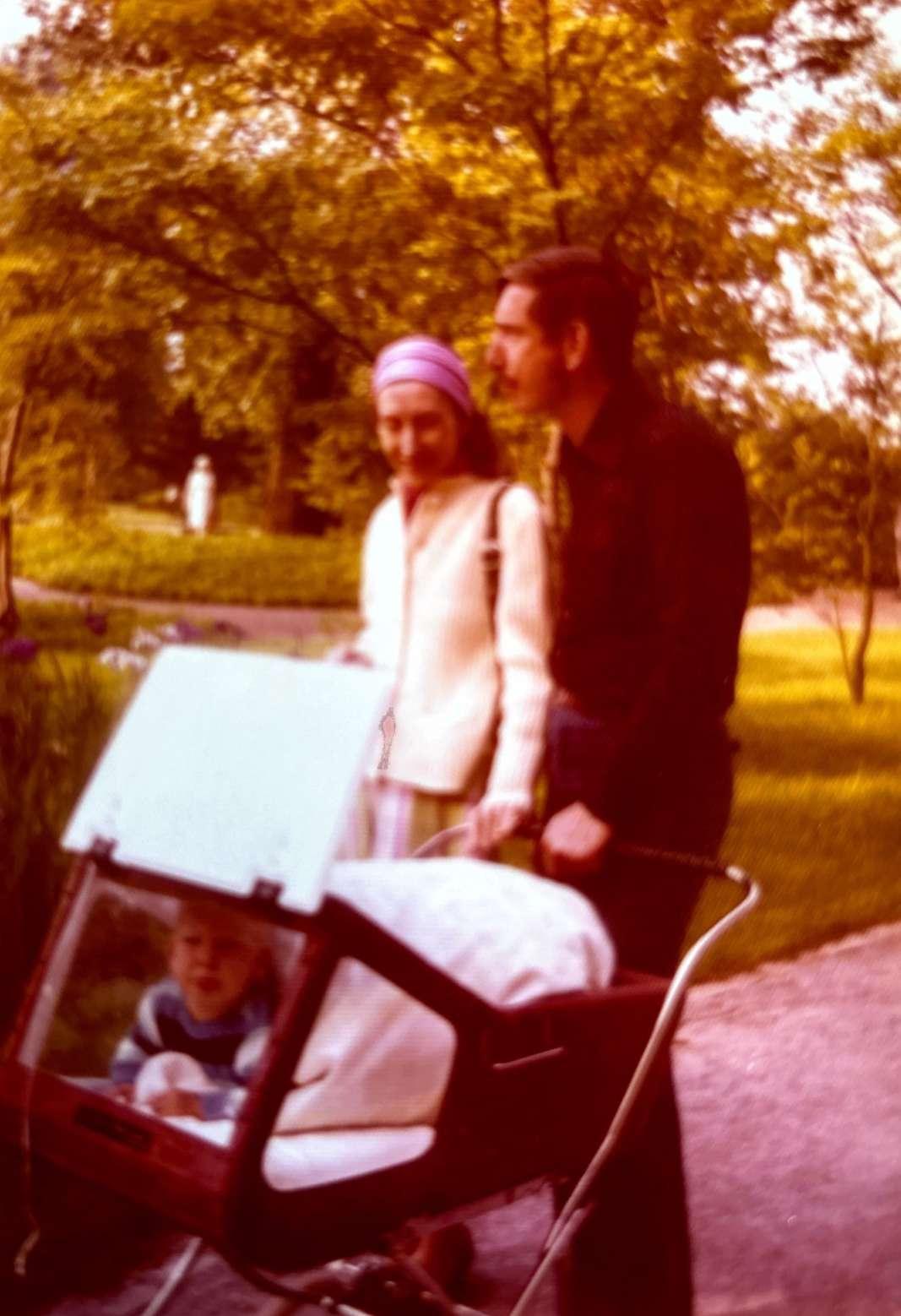
Yet, in the aftermath of such a terrifying ride, something miraculous happened. When they arrived at the serene shore of Lake Titicaca two weeks later, my grandmother found out she was pregnant—though it took till they had returned back home for the joy of that miracle and her pregnancy to truly sink in. Both of them were super overjoyed; their long-awaited dream was finally fulfilled. In their minds, they expected a boy, in tribute to the miracle adventure of the great German explorer Alexander von Humboldt and the freedom fighter Simón Bolívar, so they had already decided on the name Simon Alexander.
When my mom turned out to be a girl, her mother, ever graceful, chose to keep the name as a tribute to the whole journey, changing “Simon” to “Edna,” a name of Hebrew origin meaning bliss and loveliness and to keep the name Alexander as a second name, just changing it to Alexandra. The loving friend who accompanied them on their South American adventure became my mother's godfather, a sign of the deep bond they shared.
My grandmother, filled with only happiness at the birth of her first child, would not live to see my mom grow. She sadly passed away when my mother was only ten months old at the age of 39. My grandfather often told my mom that if she hadn’t been there with him and had not been his child, he would have been entirely devastated.
Years later, when my mom was thirty-three, she gave birth to her own son, my older brother. In a quiet homage to the names that once had been chosen for herself, she named him Simon Alexander to continue a legacy that stretched back through time, from when my grandparents traveled from the Andes to Lake Titicaca, from Humboldt’s exploration to Bolívar’s revolution, and now to hope for new beginnings.
n that name, my mother not only carried her mother’s wishes but also the enduring love and deep dreams that were passing through generations of our family. With every breath my brother, my mom’s first son, took, she could feel her mother’s presence, her loving joy, and the endless possibilities that a journey, no matter how long, hard, or fraught with hardship, can lead to a miracle.
In deep love to my loving grandparents, fly high.
As I close my final publication, I look back on every piece I’ve wrote, edited, and assisted on. I’m so proud of Belle and myself and the work we’ve accomplished together with the help of Mrs. Waterman. I’m grateful for Belle’s hard work and understanding, as this hasn’t been the easiest edition for us. I want to congratulate and give my support to the next three Hebron Review editors and hope they succeed. Thank you!
After the last three years of being a Hebron Review member, this will be my final publication. It is a bittersweet moment with so many life lessons learned throughout the process. I'm incredibly happy with how this last magazine turned out. Over the years, I've been so incredibly lucky to have an amazing team to work together with on the multiple publications I've been a part of producing. From talented graphic designers, like Kate Dilworth and Emily Finch, to awesome staff writers, and the best club advisor I could ask for, Ms. Waterman. I wouldn't be able to do this without any of the people mentioned, but I'm especially grateful for Tessa and her tremendous efforts throughout her time in Hebron Review. Together we've produced three fantastic magazines, and I'm beyond thankful for our experience working on these publications. I hope you enjoy our final edition of The Hebron Review!



Bele Beauchesne


Hello everyone! Our names are Jeremy, Sylvie, and Louisa and we are super excited to be the new Hebron Review editors for this year and next year. We have loved beginning to learn about the process for putting together a magazine for this issue through brainstorming with our staff writers, soliciting and editing pieces, and juggling it all with our busy schedules. Next year, we hope to put together an even better edition with the new student body and can’t wait to do it all ourselves, as this year we had a lot of help from Belle and Tessa. Thanks for reading!
Belle Beauchesne ’25
Tessa Sweeney ’25
Jeremy Lavoie ’26
Sylvie Gill ’26
Louisa Strong ’26
Graphic Design
Emily Finch ’27
Cover Photo
Laura Dougherty
Advisor
Barbara Waterman
Special Thanks To:
Hill0ry Oakes and Barbara Waterman

Spring 2025